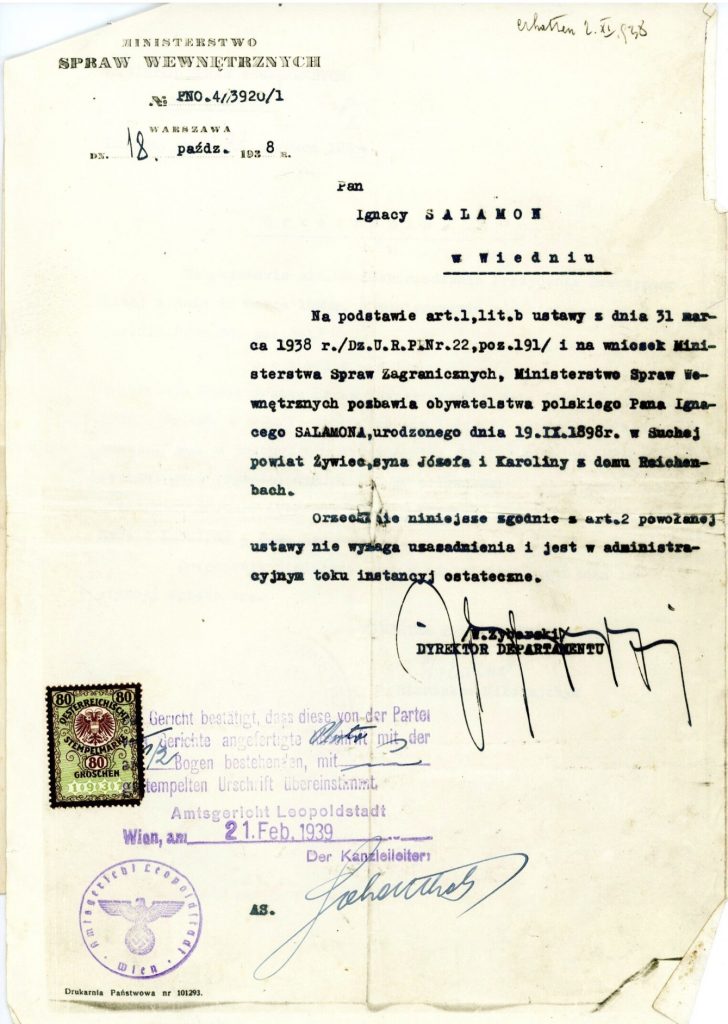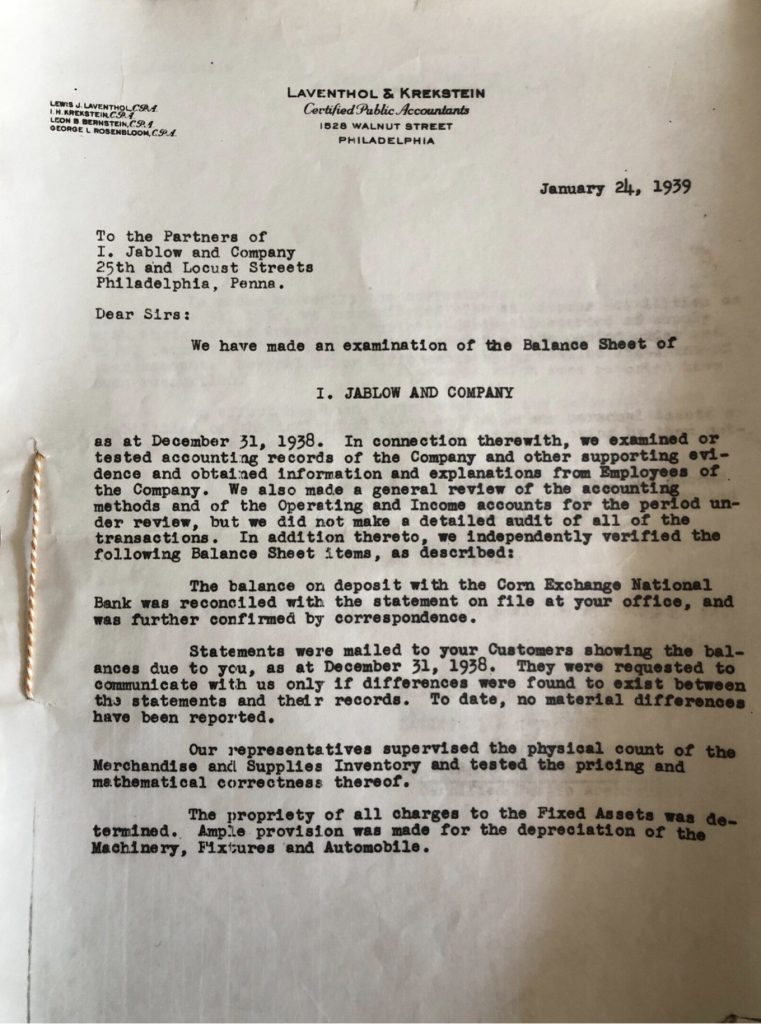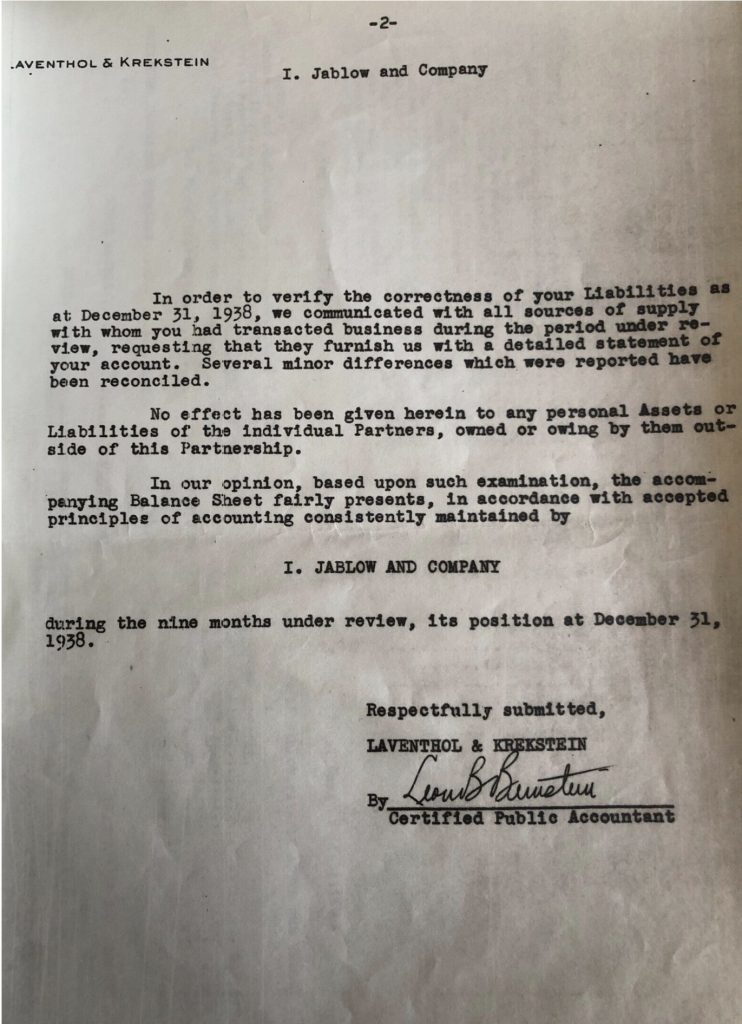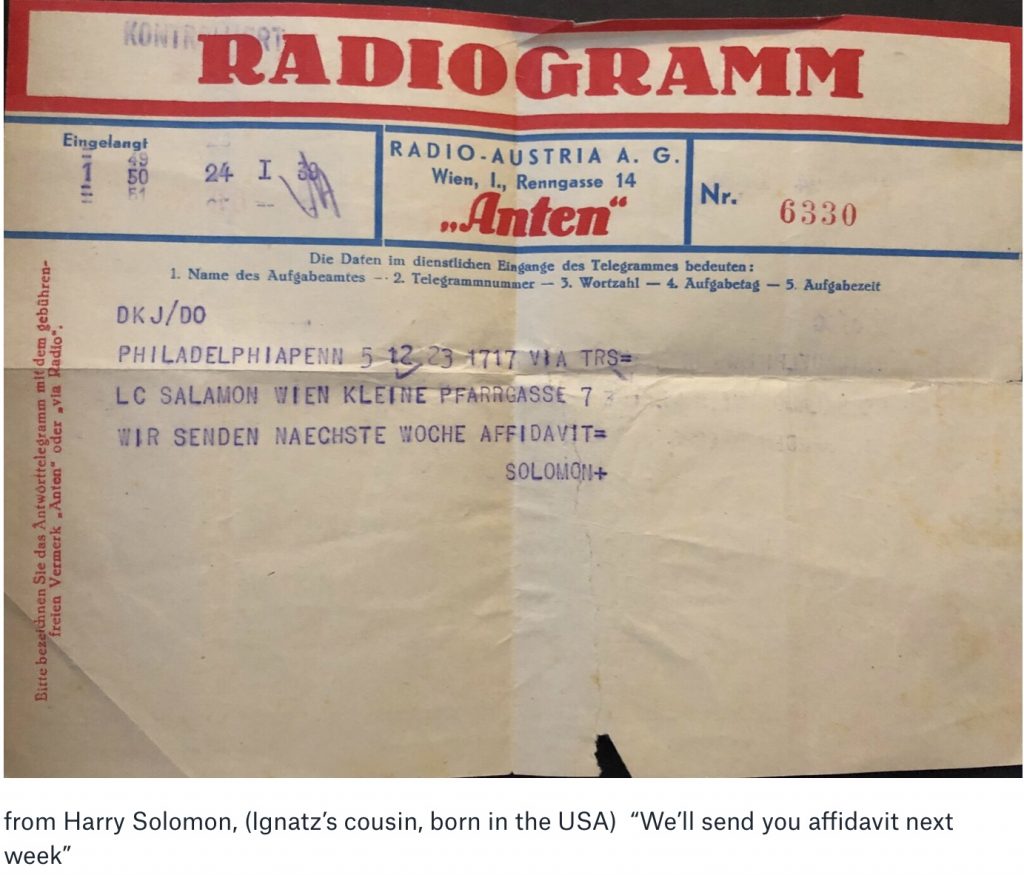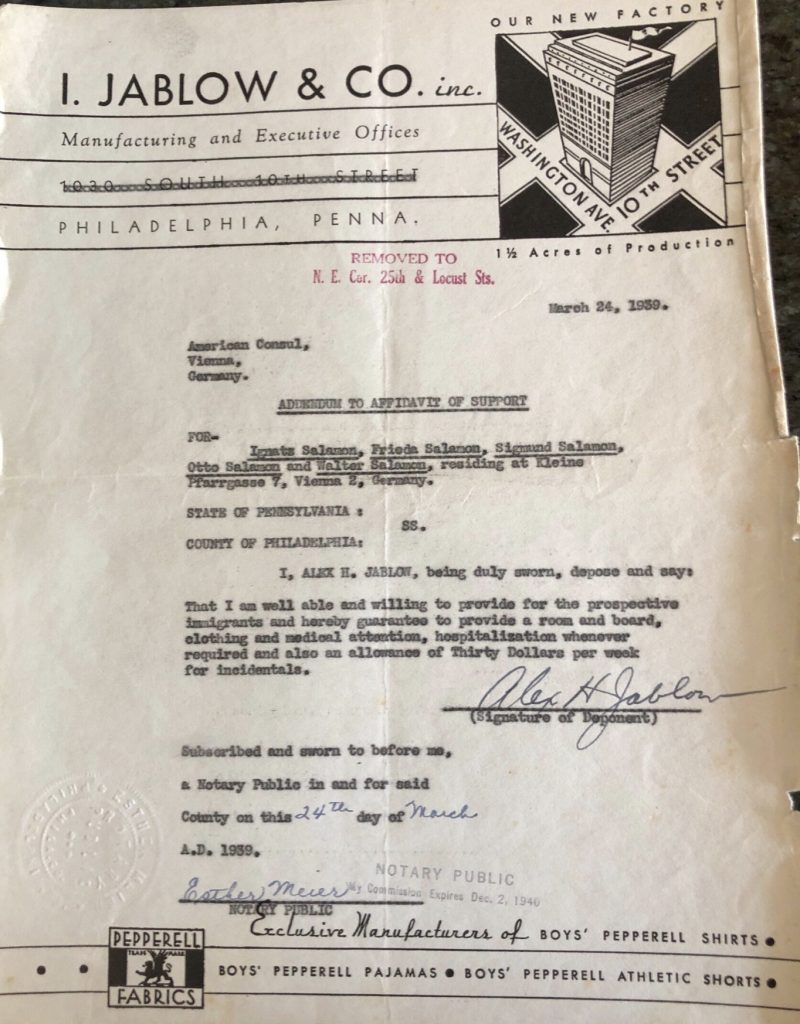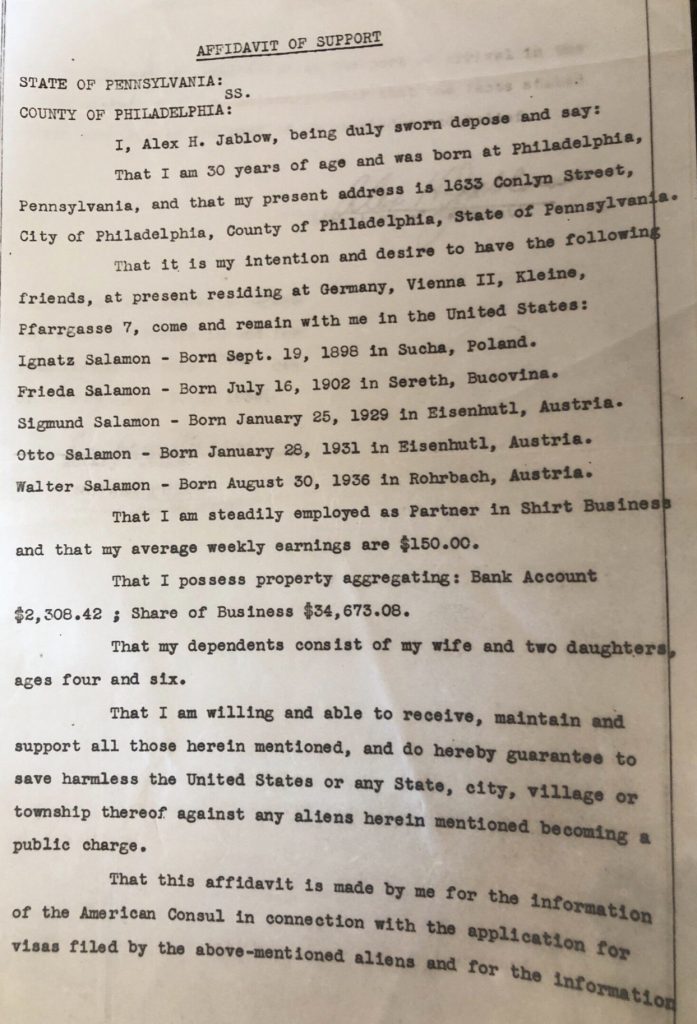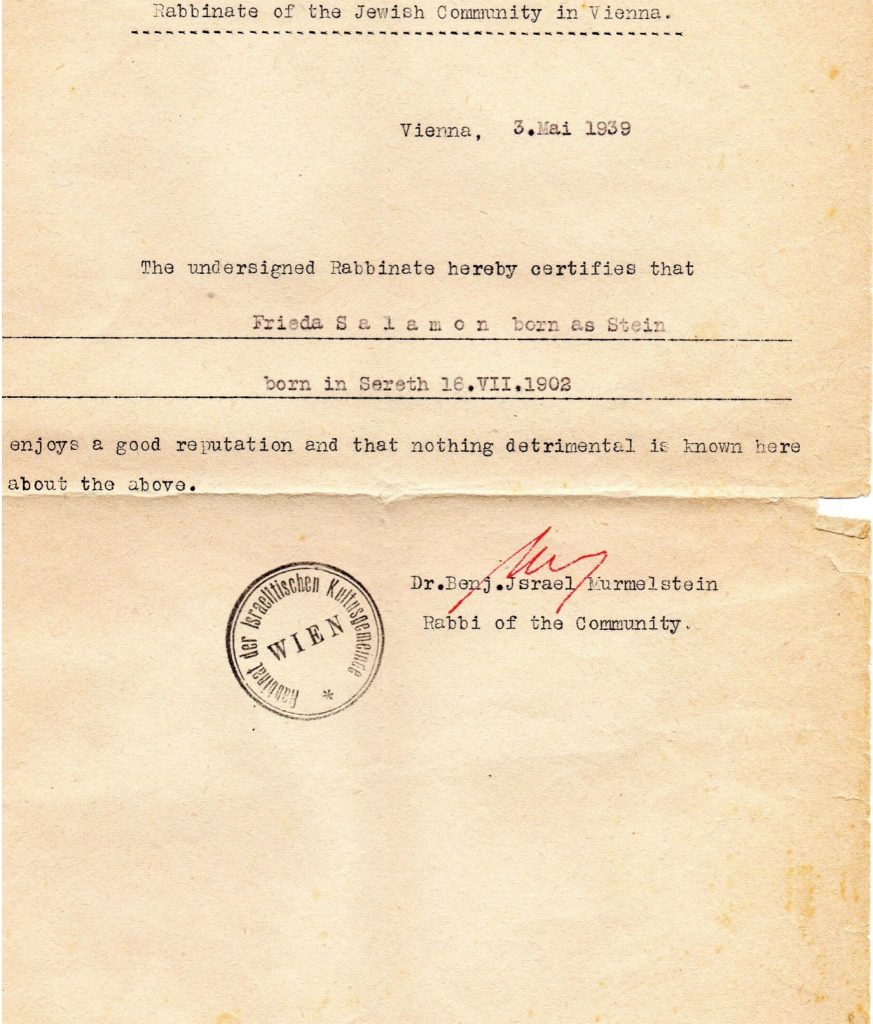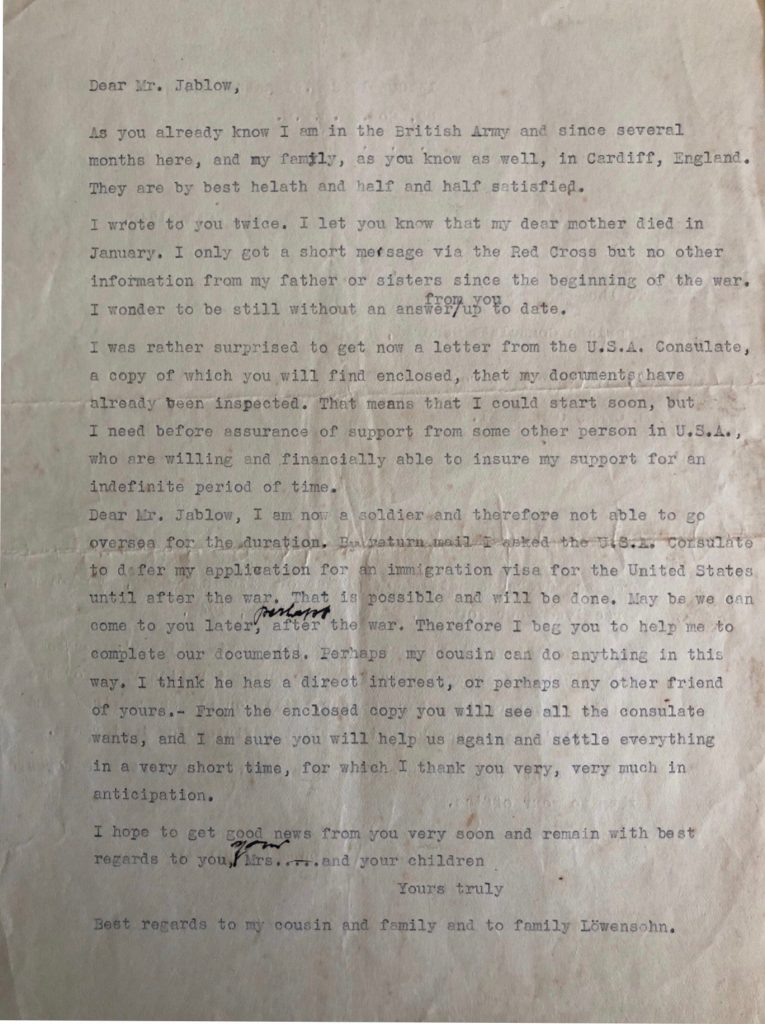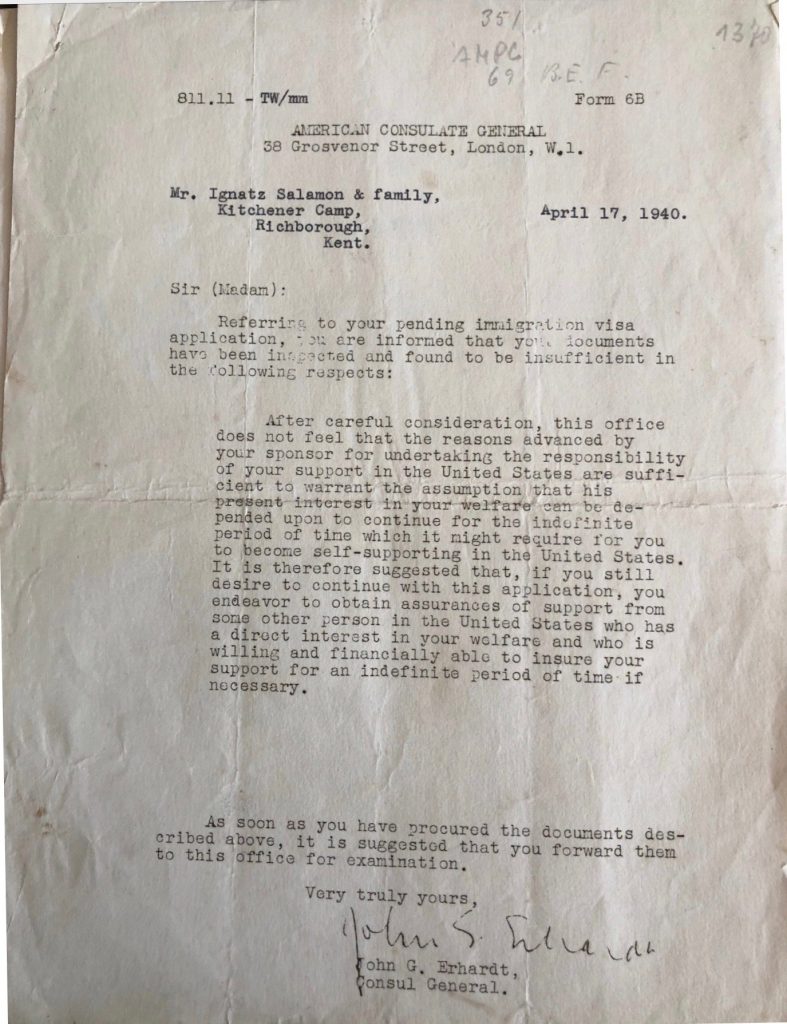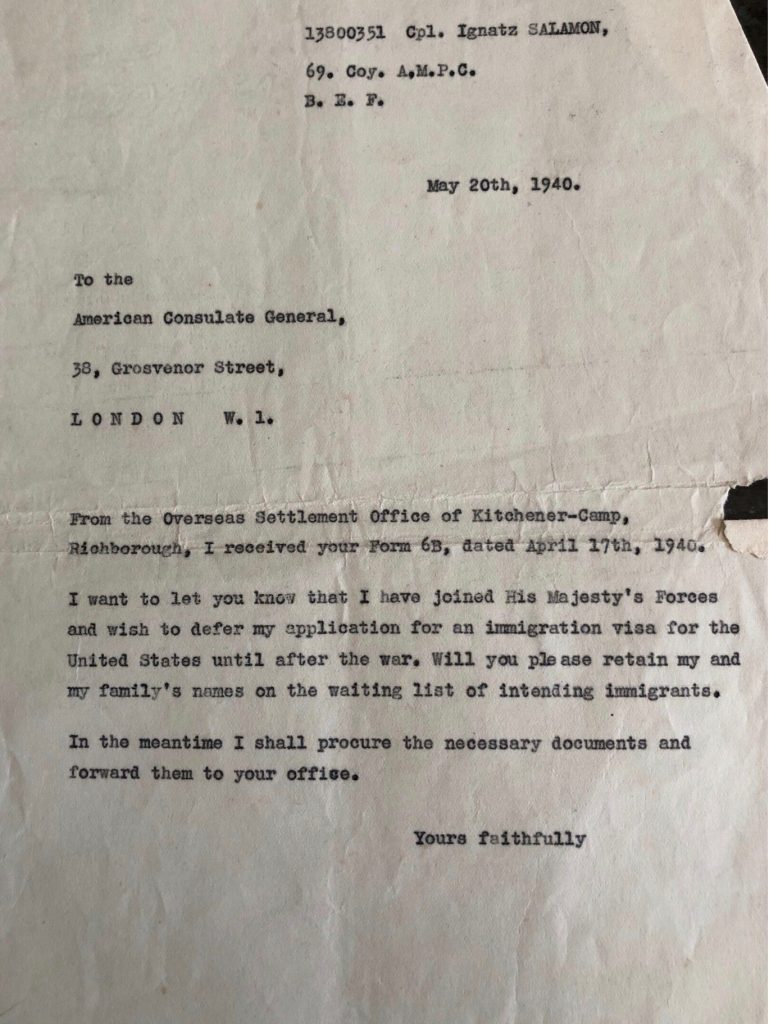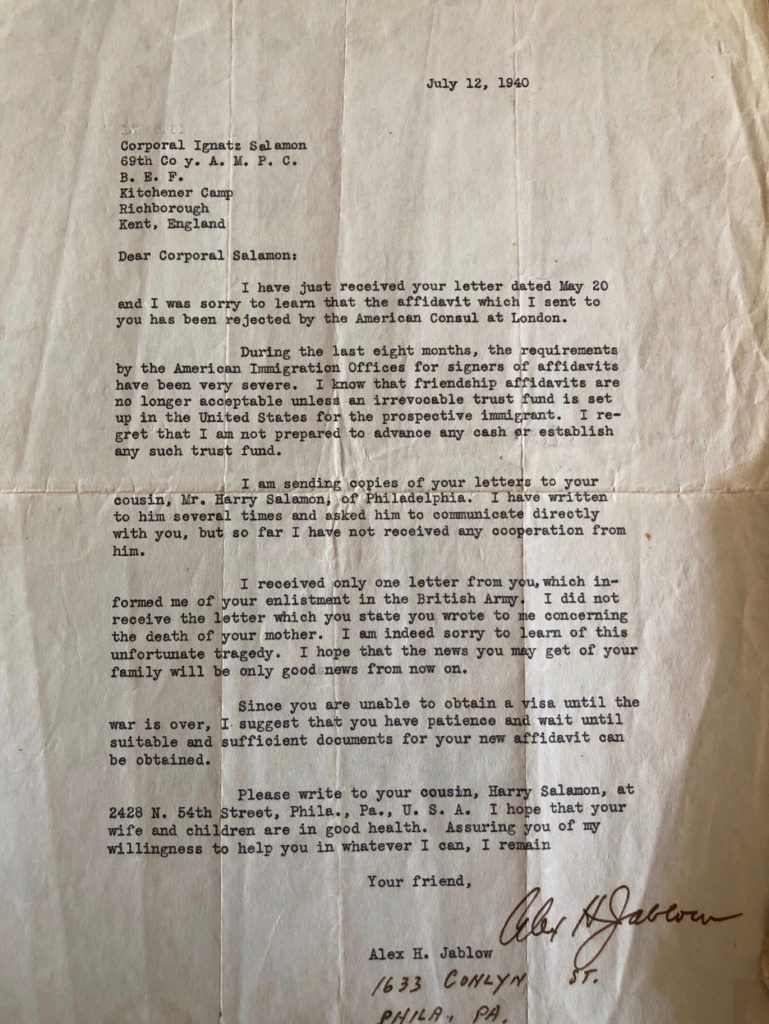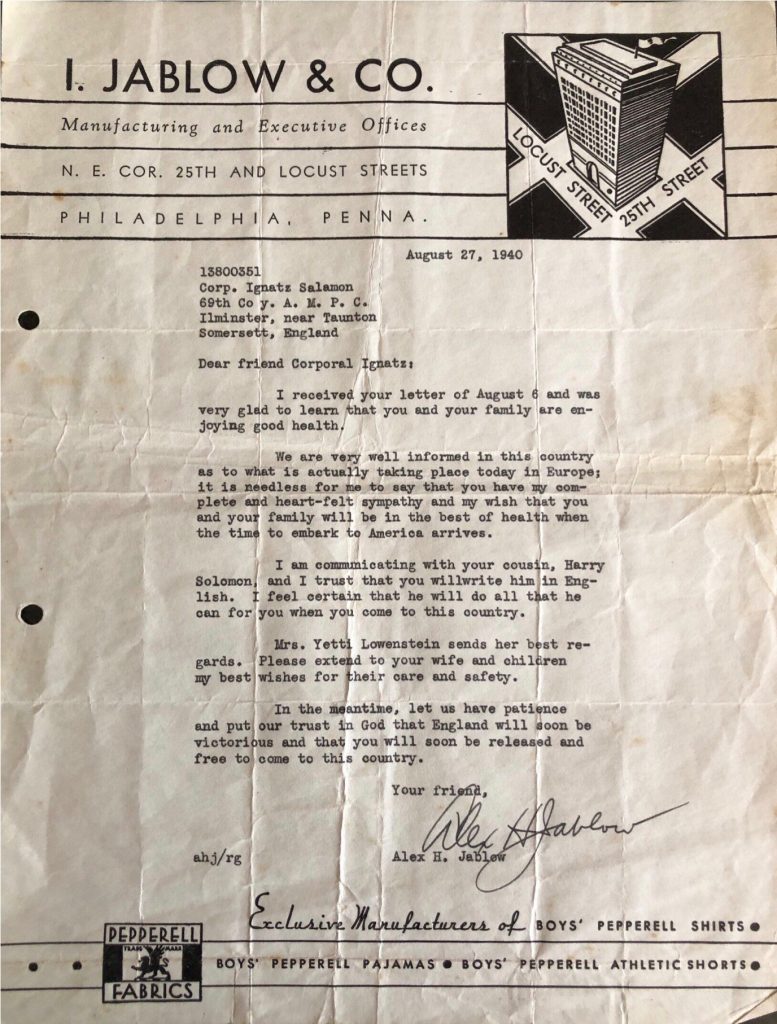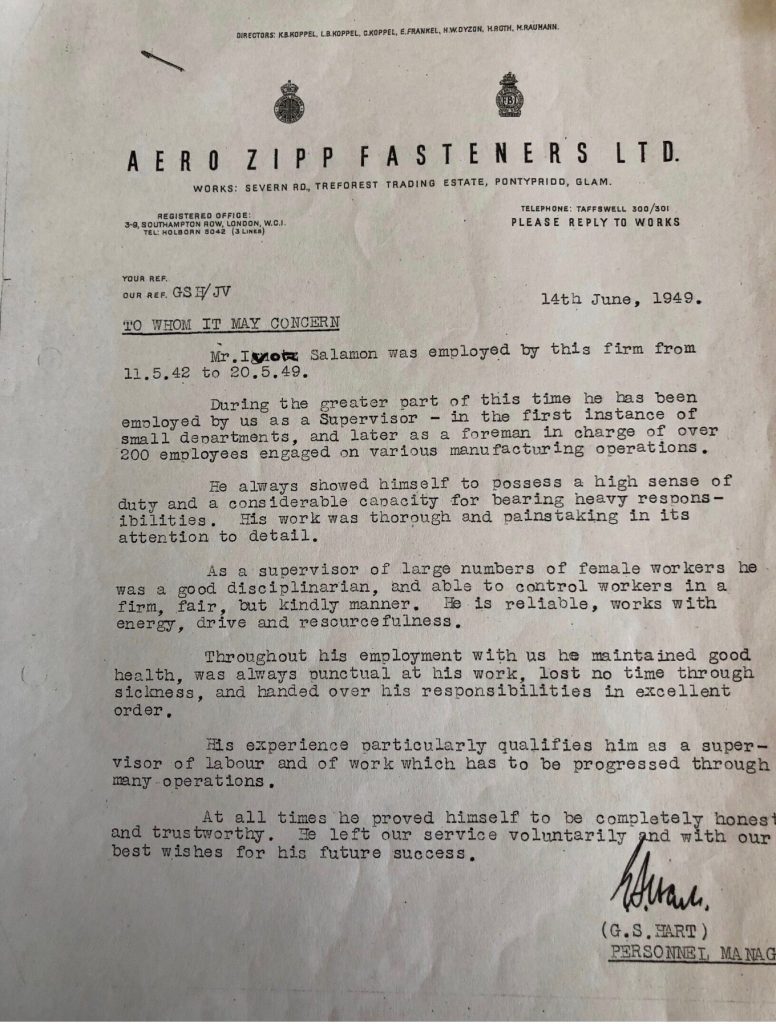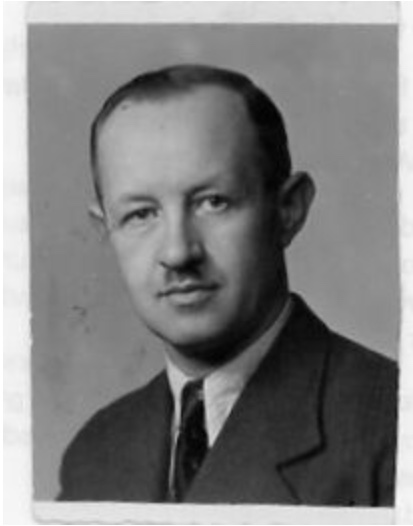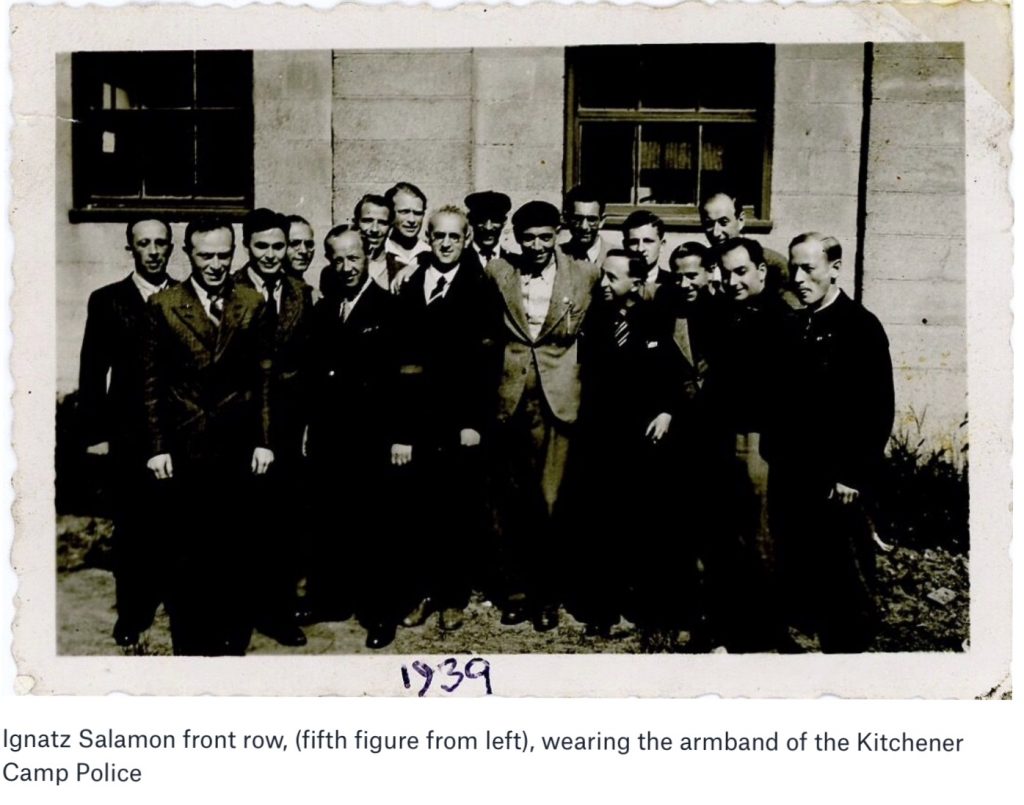Born: Sucha, Poland, 19 September 1898
Profession in country of origin: Grocer
Arrived in Britain as a refugee from Austria in 1939
Documents
Male enemy alien - Exemption from internment - Refugee
Surname: Salamon
Forename: Ignatz
Alias: -
Date and place of birth: 19/09/1898 in Sucha
Nationality: Stateless
Police Regn. Cert. No.: 711 266
Home Office ref: C 1907
Address: Kitchener camp, Richborough, Sandwich, Kent
Normal occupation: Grocer
Present occupation: Camp Police
Name and address of employer: -
Decision of tribunal: Exempted "C" & 9A
Date 11.10.1939
Whether exempted from Article 6(A): Yes
Whether desires to be repatriated: No
Tribunal District: Richborough Camp Tribunal 6
Signature of Tribunal: Trevor Hunter
Female enemy alien - Exemption from internment - Refugee Surname: Salamon Forename: Frieda Alias: - Date and place of birth: 16/04/1902 in Sareth, Roumania Nationality: Stateless Police Regn. Cert. No.: 720 043 Home Office ref: Address: "Little Roburst (?)", Woodchurch, Nr Ashford, Kent Normal occupation: Proprietress of General Store Present occupation: Housemaid Name and address of employer: Mrs Marchant, "Little Roburst (?)", Woodchurch, Nr Ashford, Kent Decision of tribunal: No action recommended Date 12.10.1939 Whether exempted from Article 6(A): Yes [Later crossed out in red] Whether desires to be repatriated: No Tribunal District: Canterbury
Source: National Archives, Home Office: Aliens Department: Internees Index, 1939-1947.
Editor’s note: We are not allowed to reproduce National Archives (UK) images, but we are permitted to reproduce the material from them, as shown in the two images above.
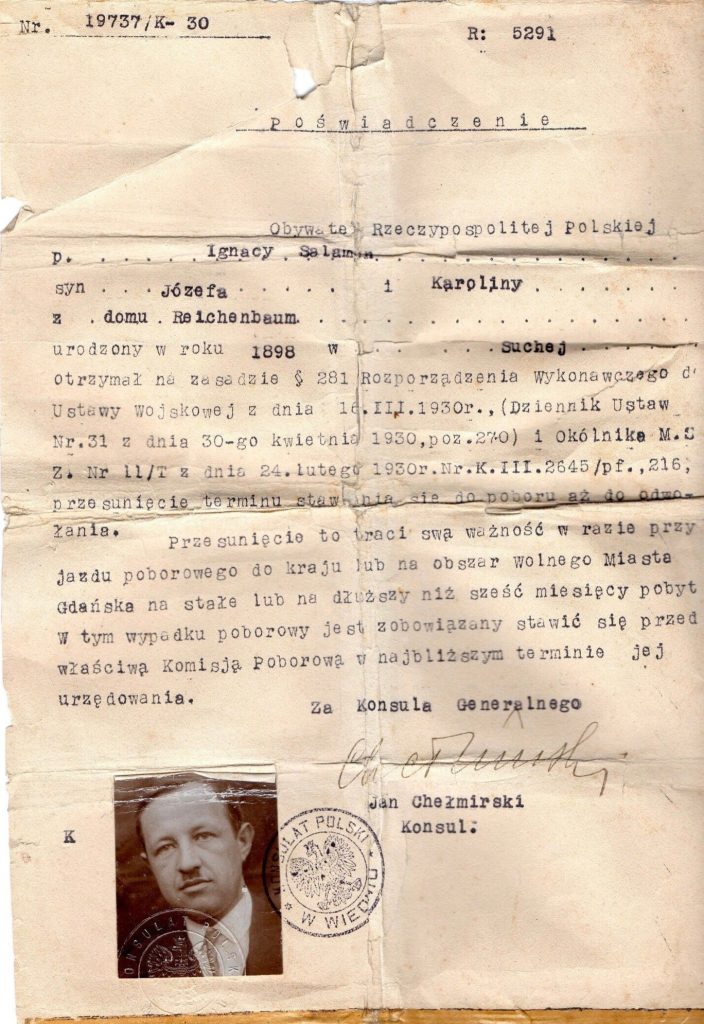
This document reads:
Polish Citizen Ignacy Salamon, son of Jozef and Karolina (maiden name Reichenbaum), born in the year 1898 in Sucha, was given, based on the rule 281 of the (?) Regulation to Military Law from 16/03/1930, a delay of the date of Military recruitment until further notice. This delay is to be annulled in the case of the recruit's arrival in the home country or the Territory of the Free City of Gdansk on a permanent basis or for a period longer than 6 months. In that case the recruit is obligated to present himself to the appropriate National Service Recruitment Office at the earliest opportunity. On behalf of the Consul General
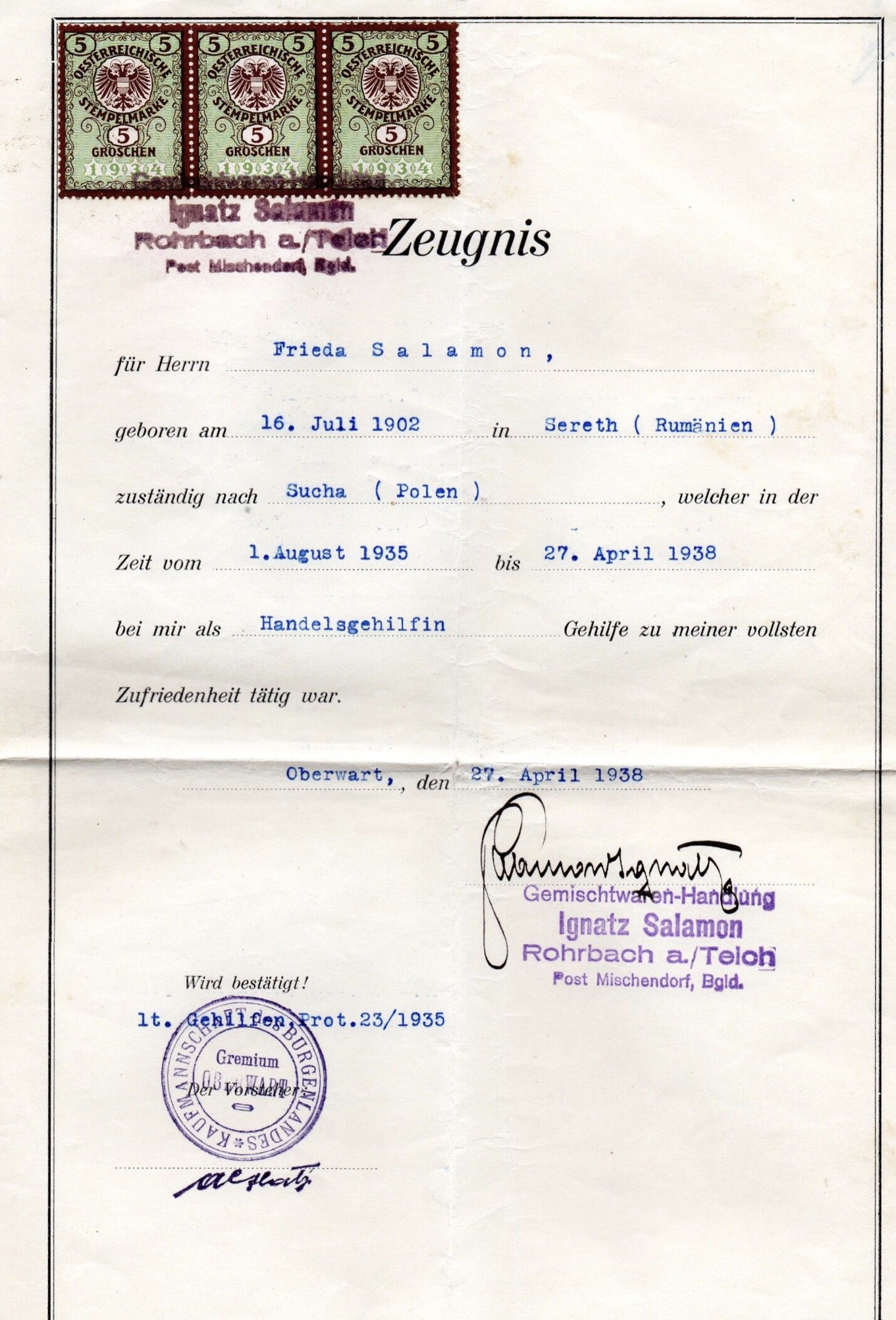
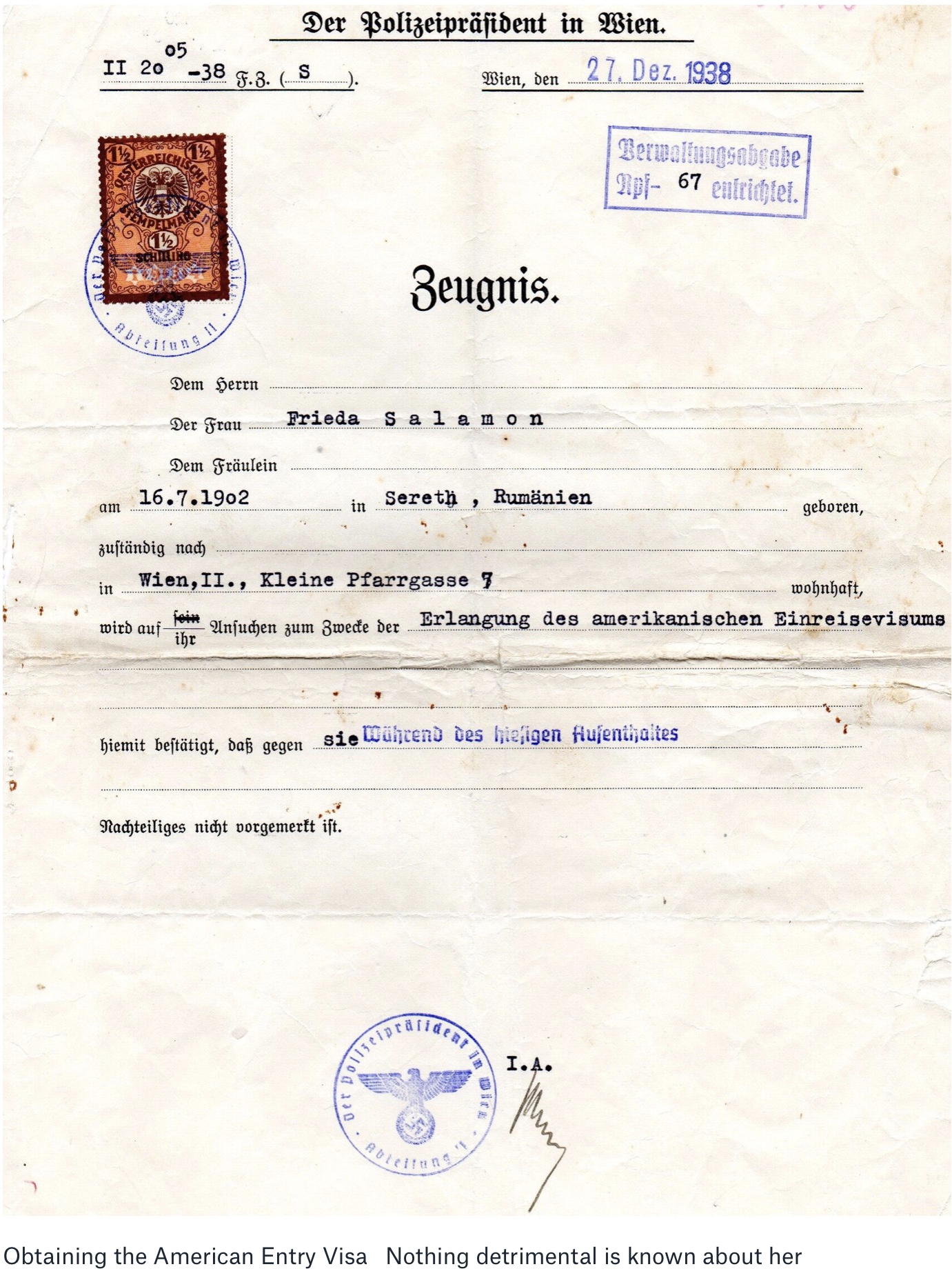
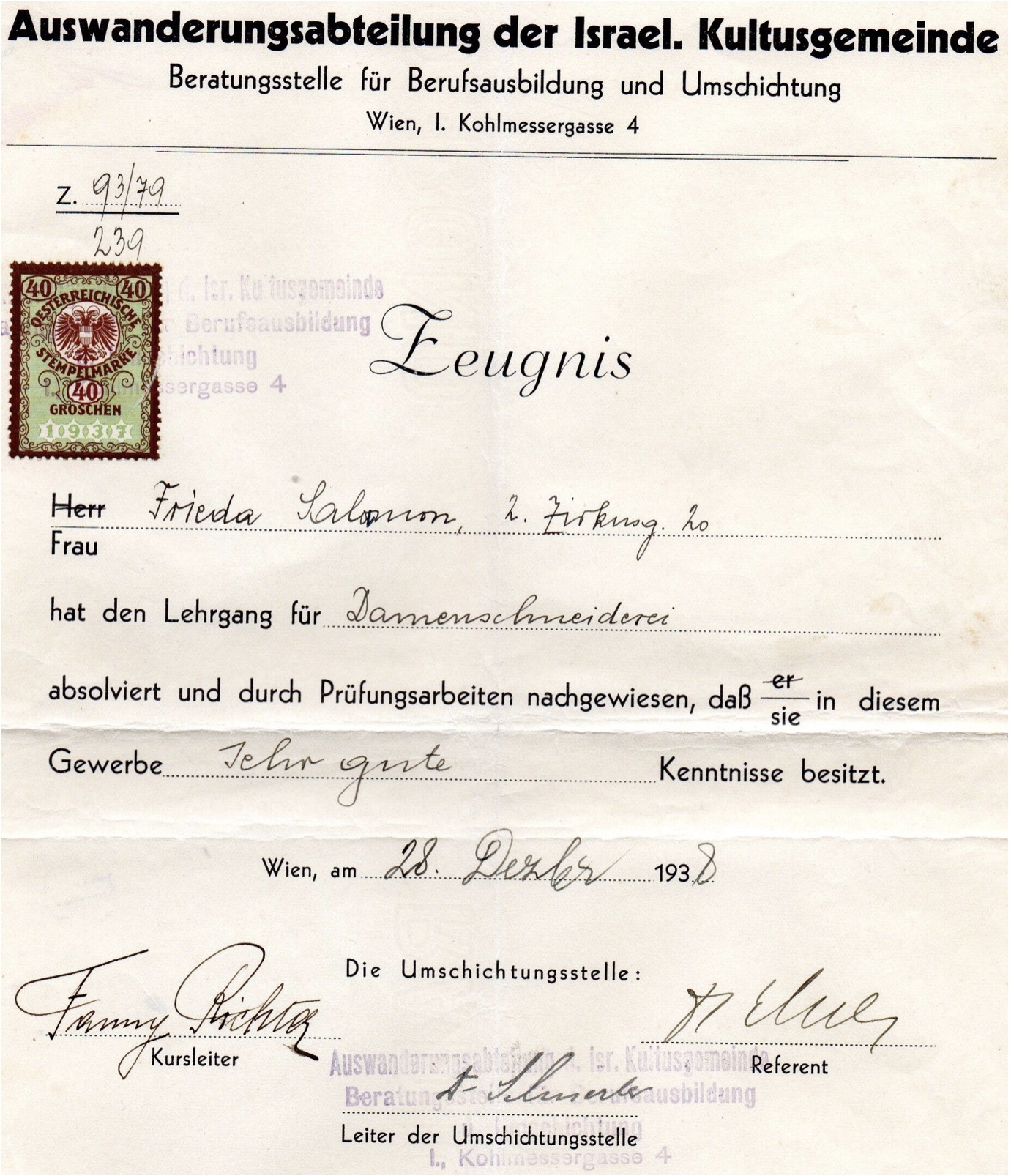
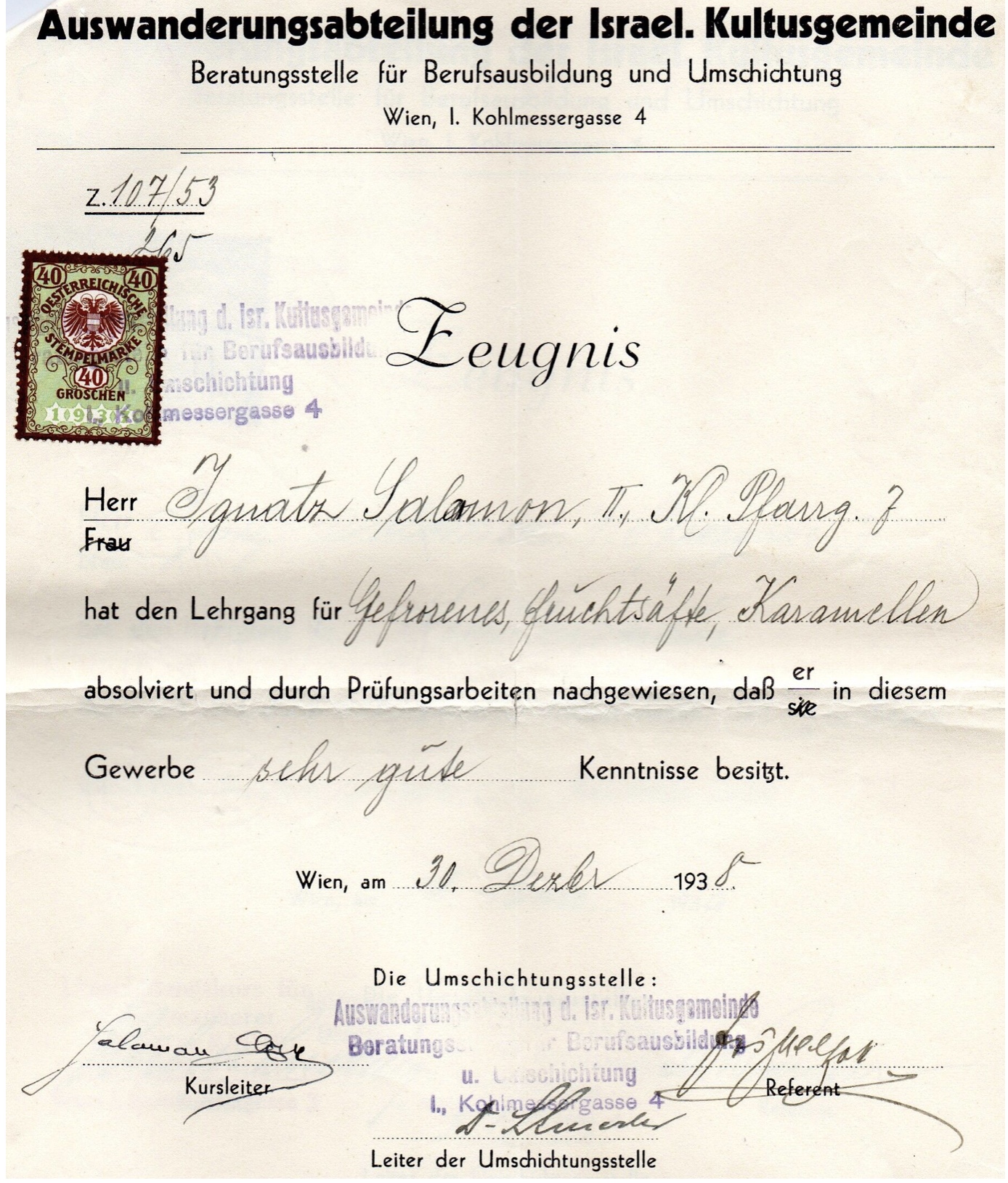
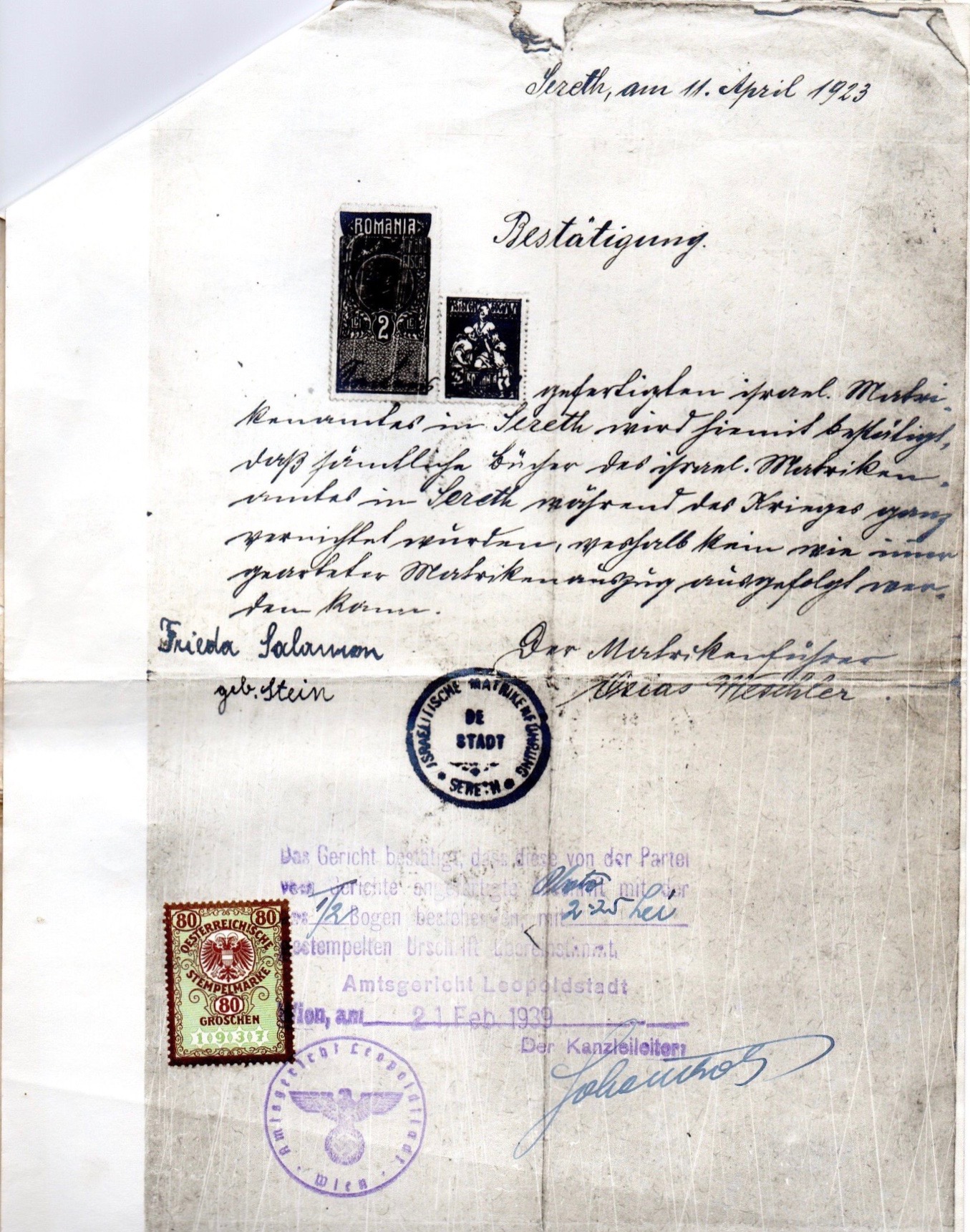
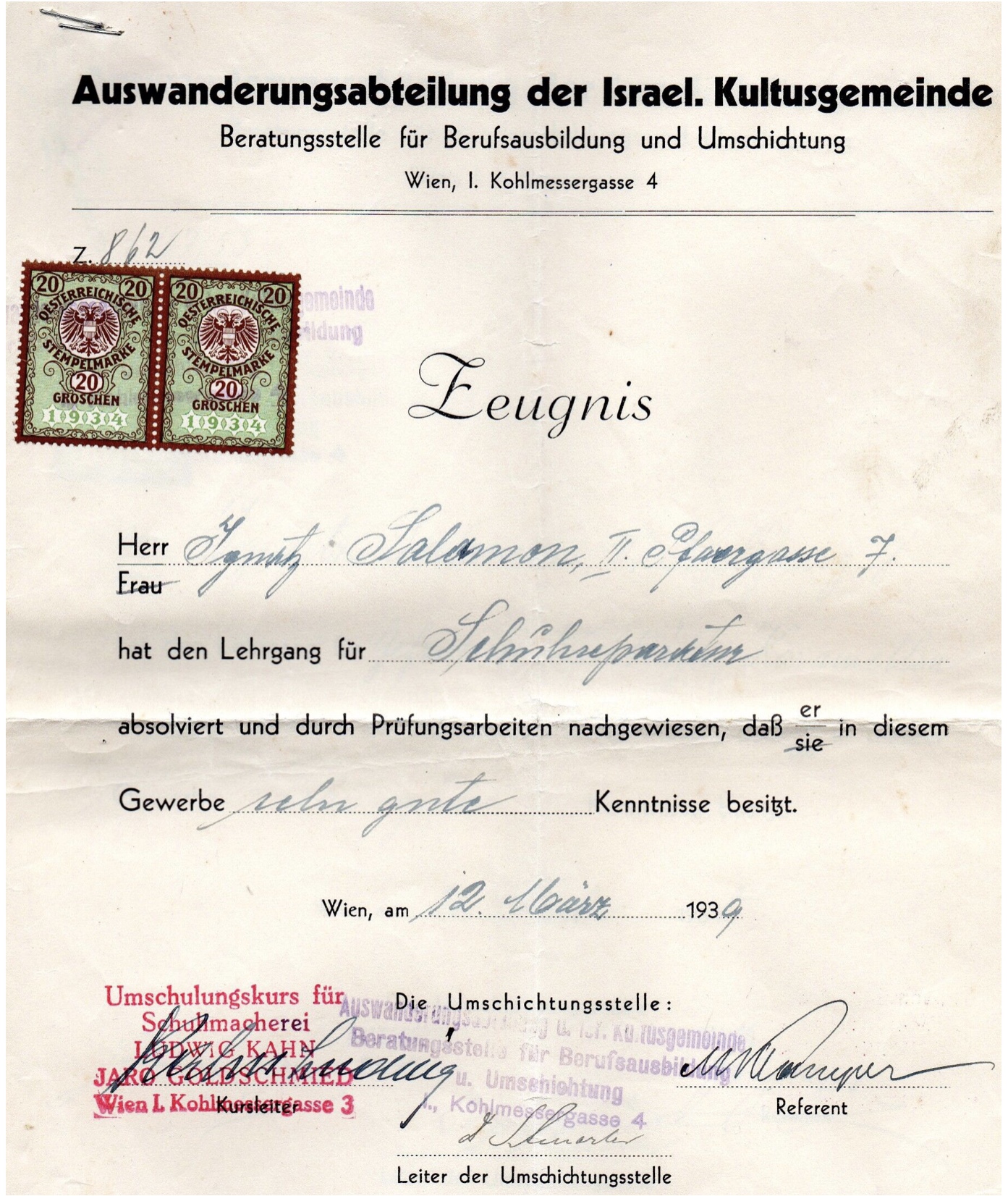
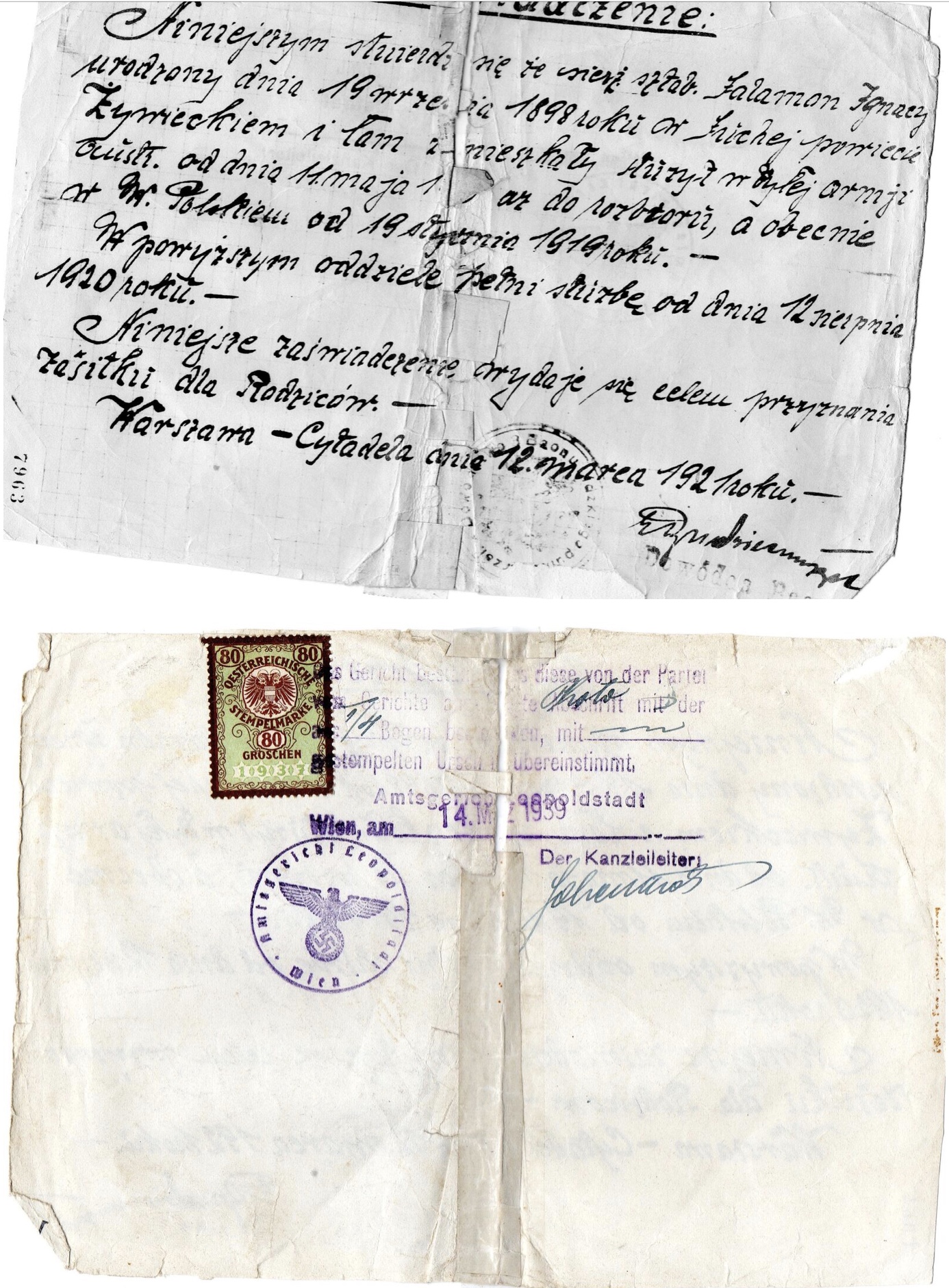
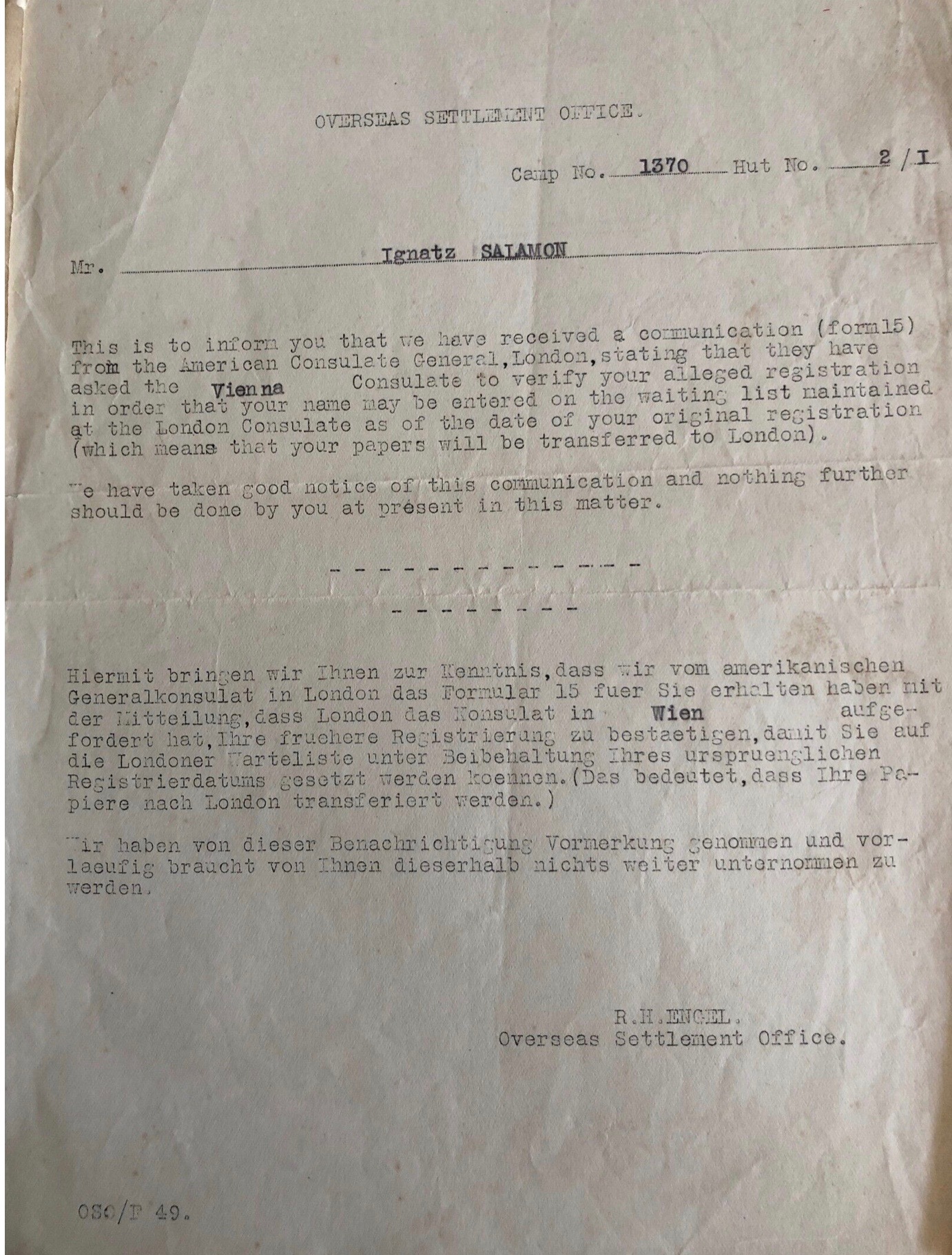
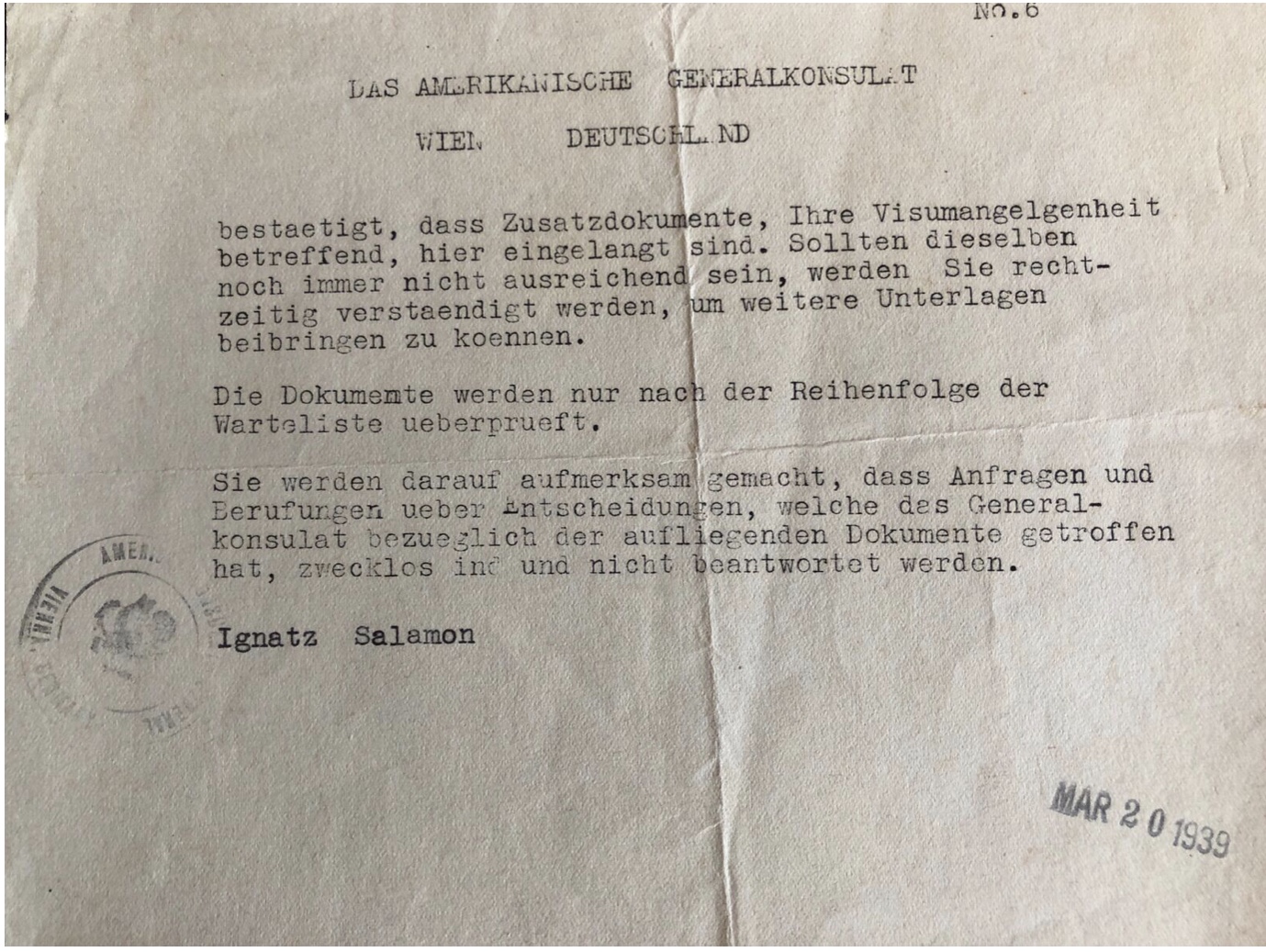
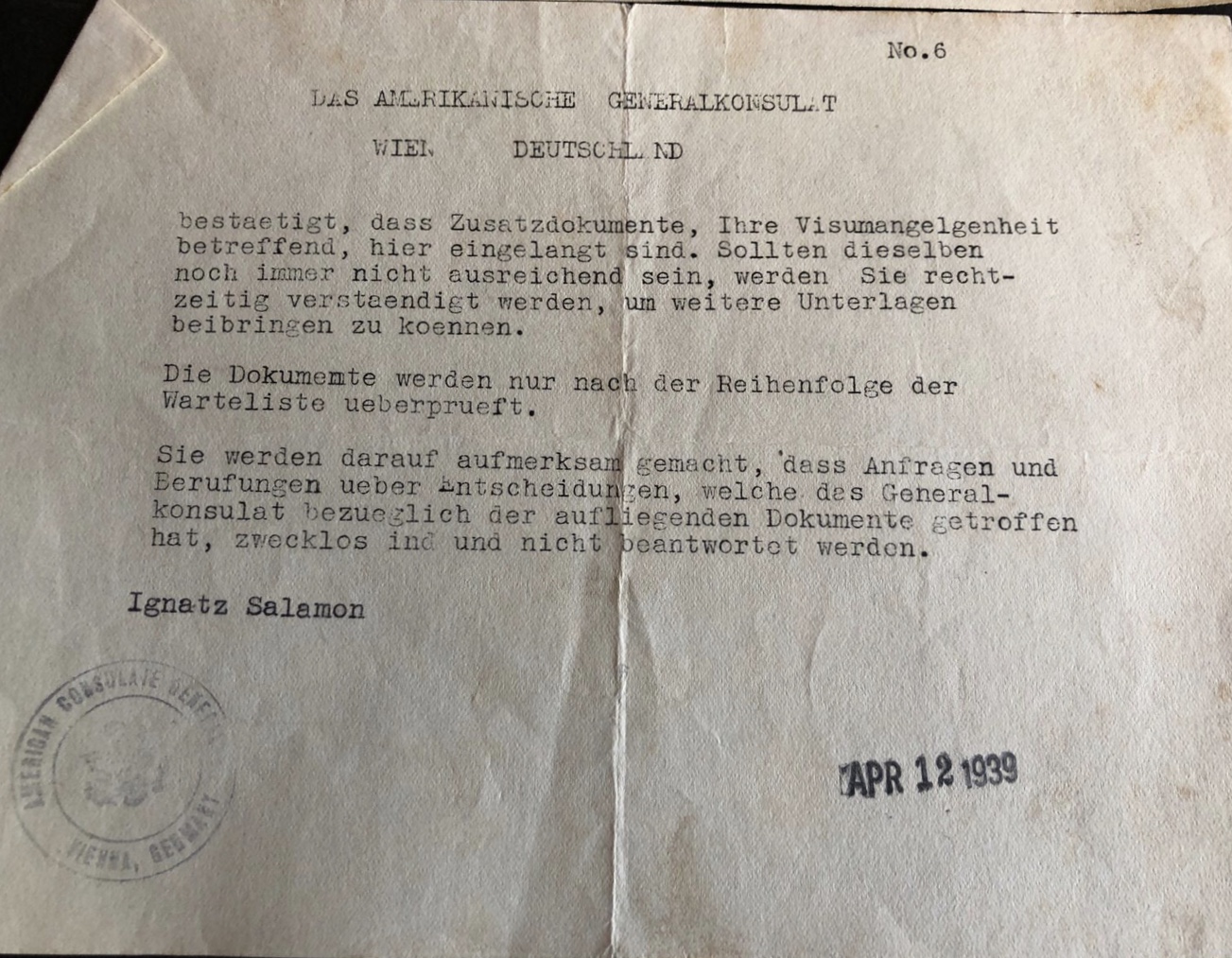


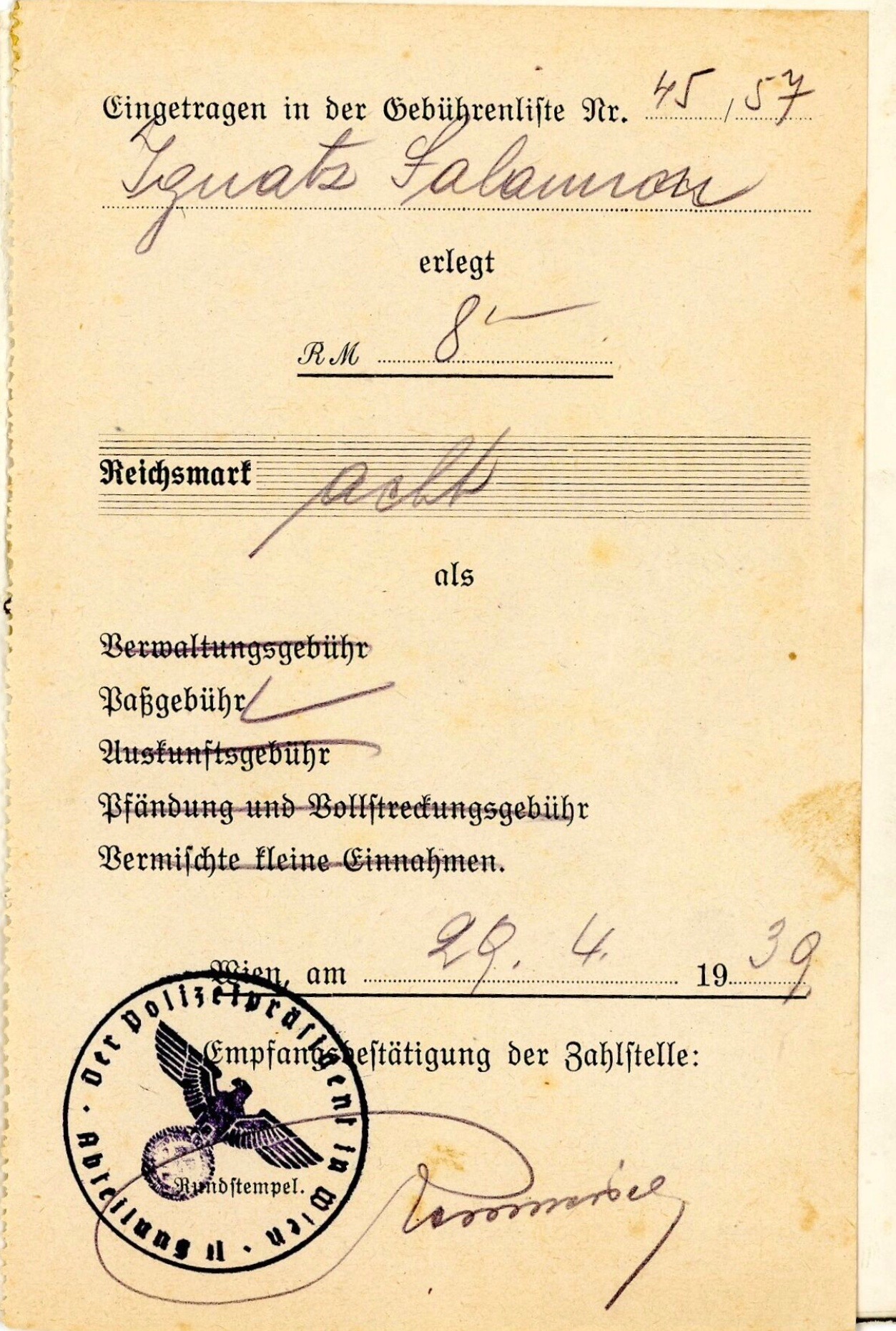
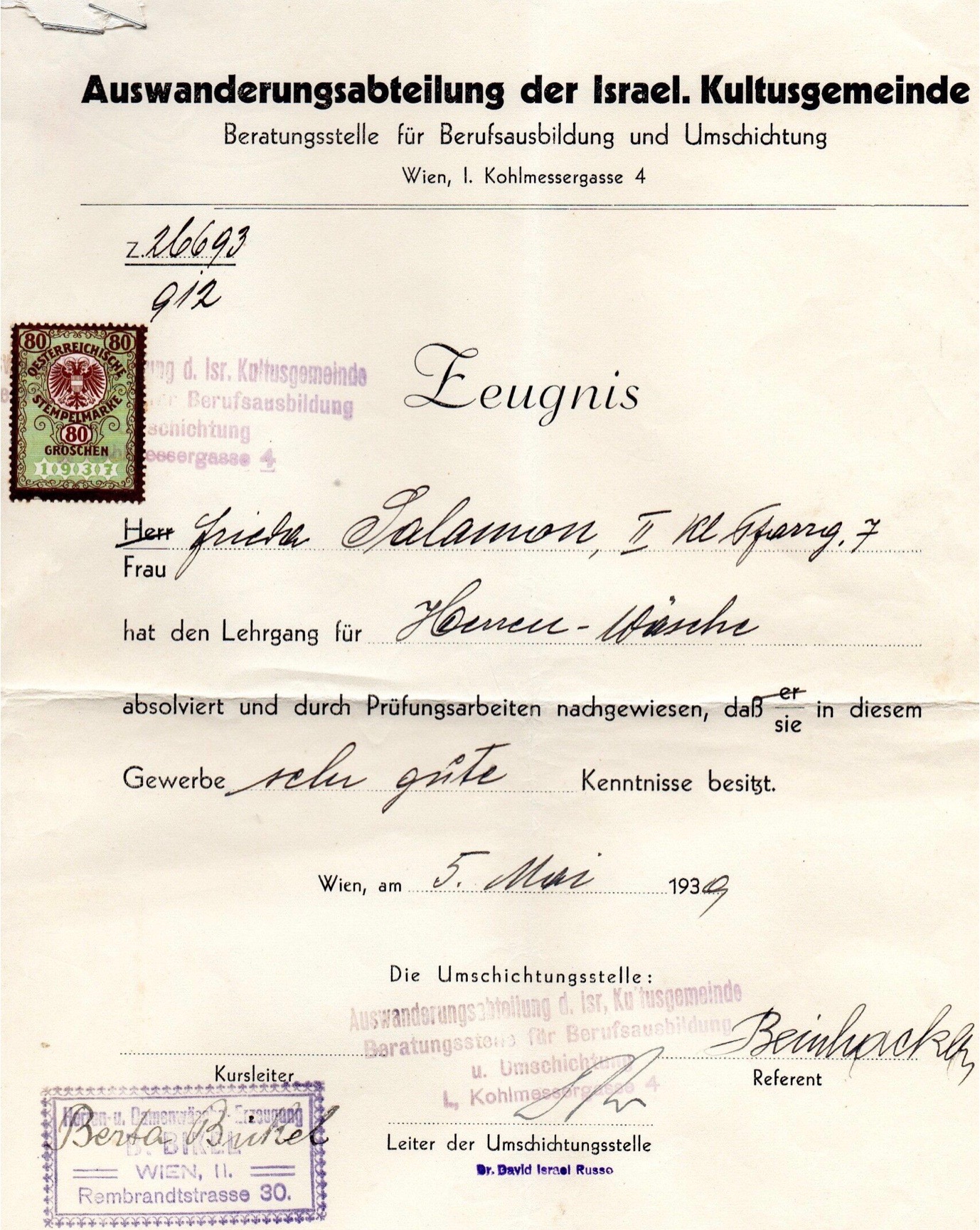
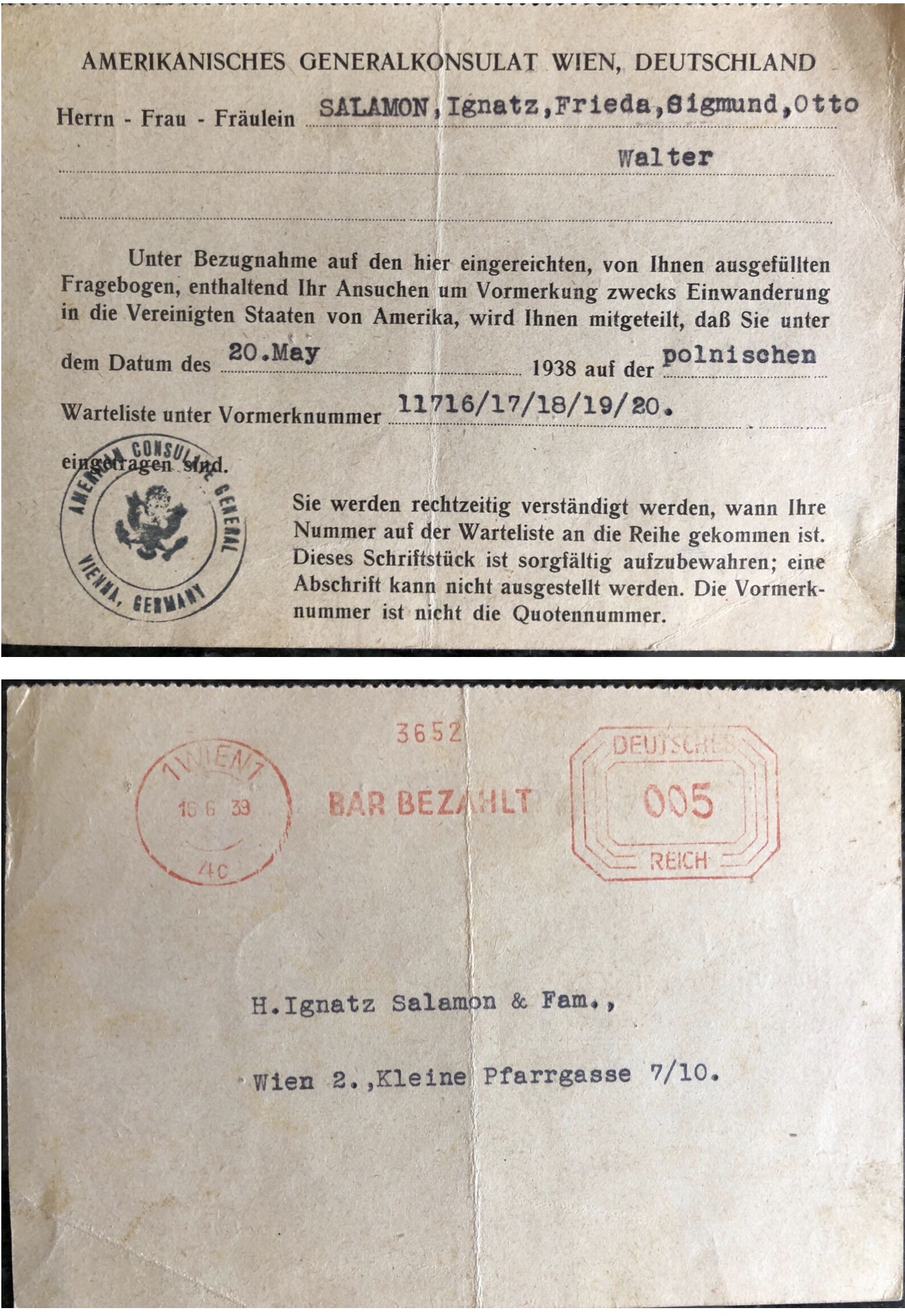
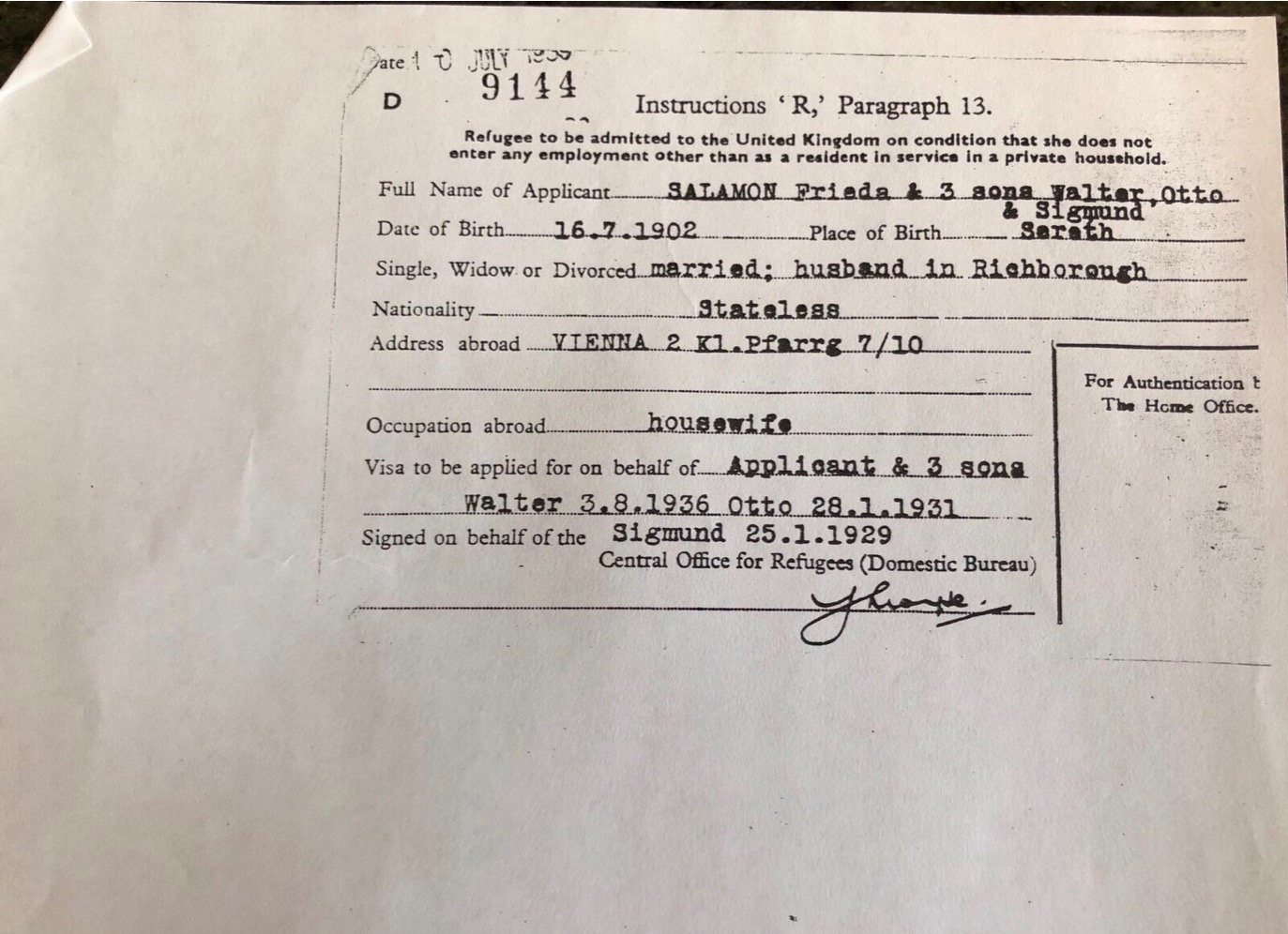
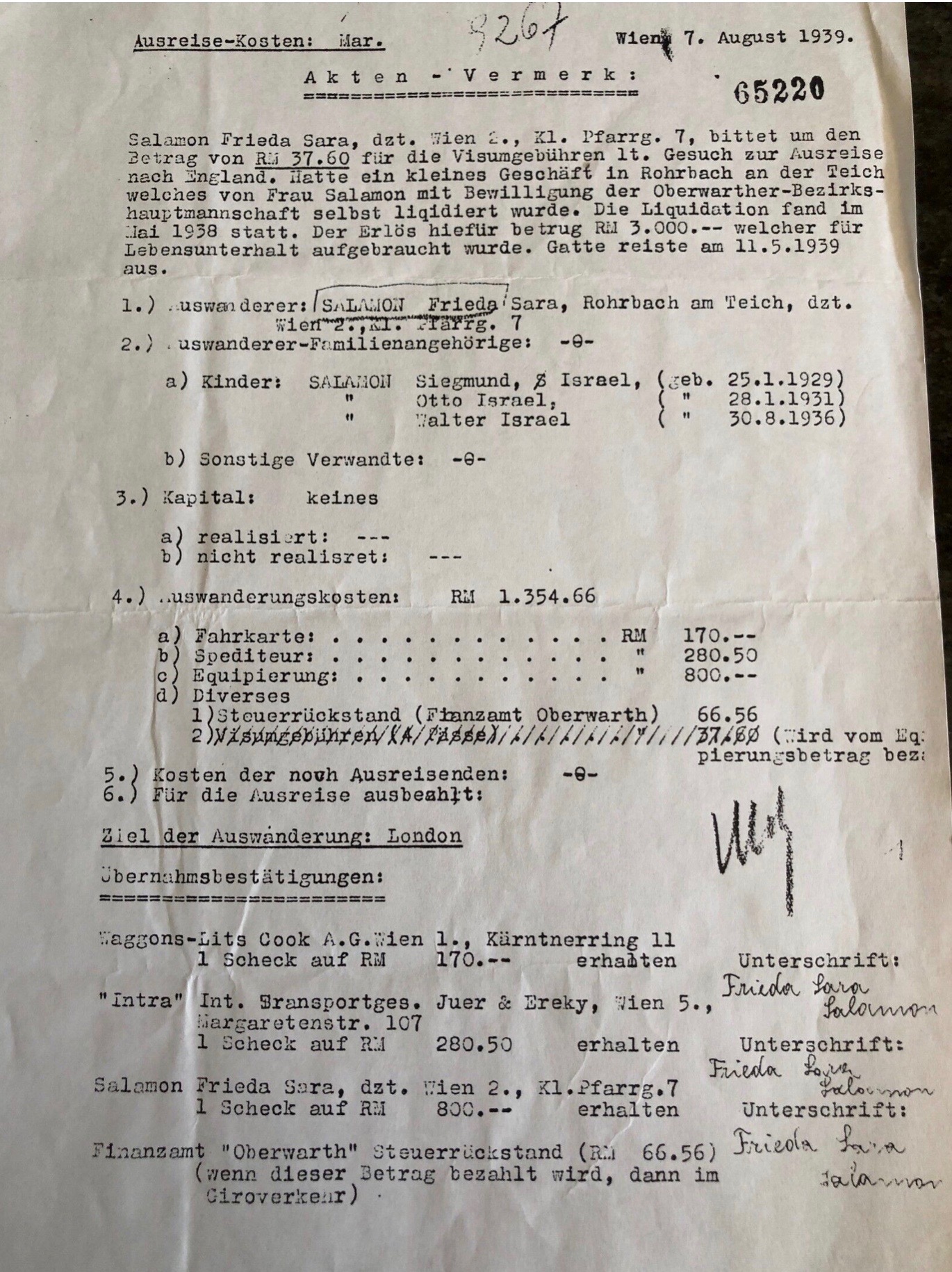
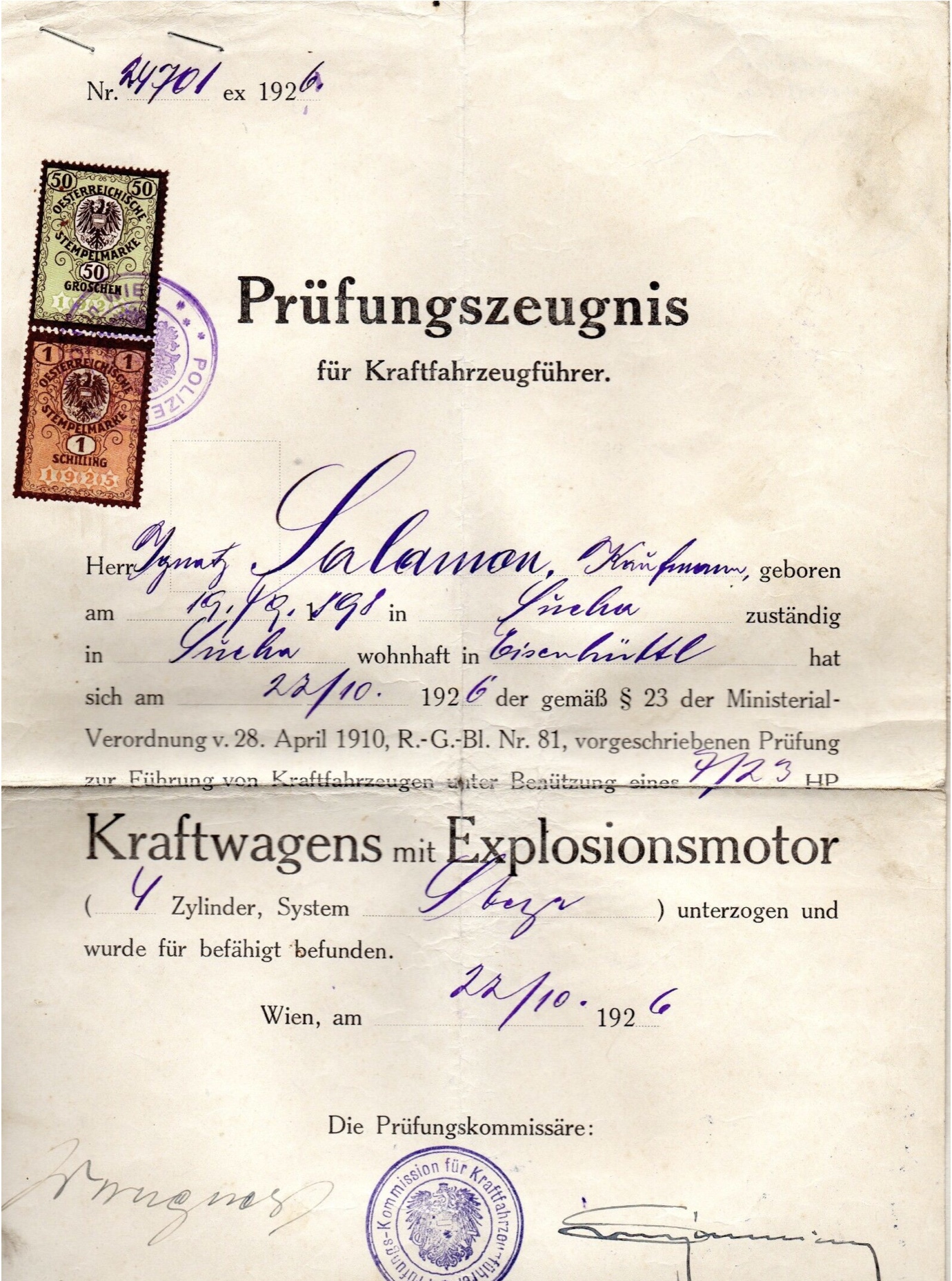
![Kitchener camp, Ignatz Salamon, Audit certificate, 22 October 1926, "I certify this to be a true copy of original shown to me. Gilbert Martin [?] of Sandwich, 2(4?) September 1939](https://kitchenercamp.co.uk/wp-content/uploads/2019/05/fullsizeoutput_2cbf.jpeg)


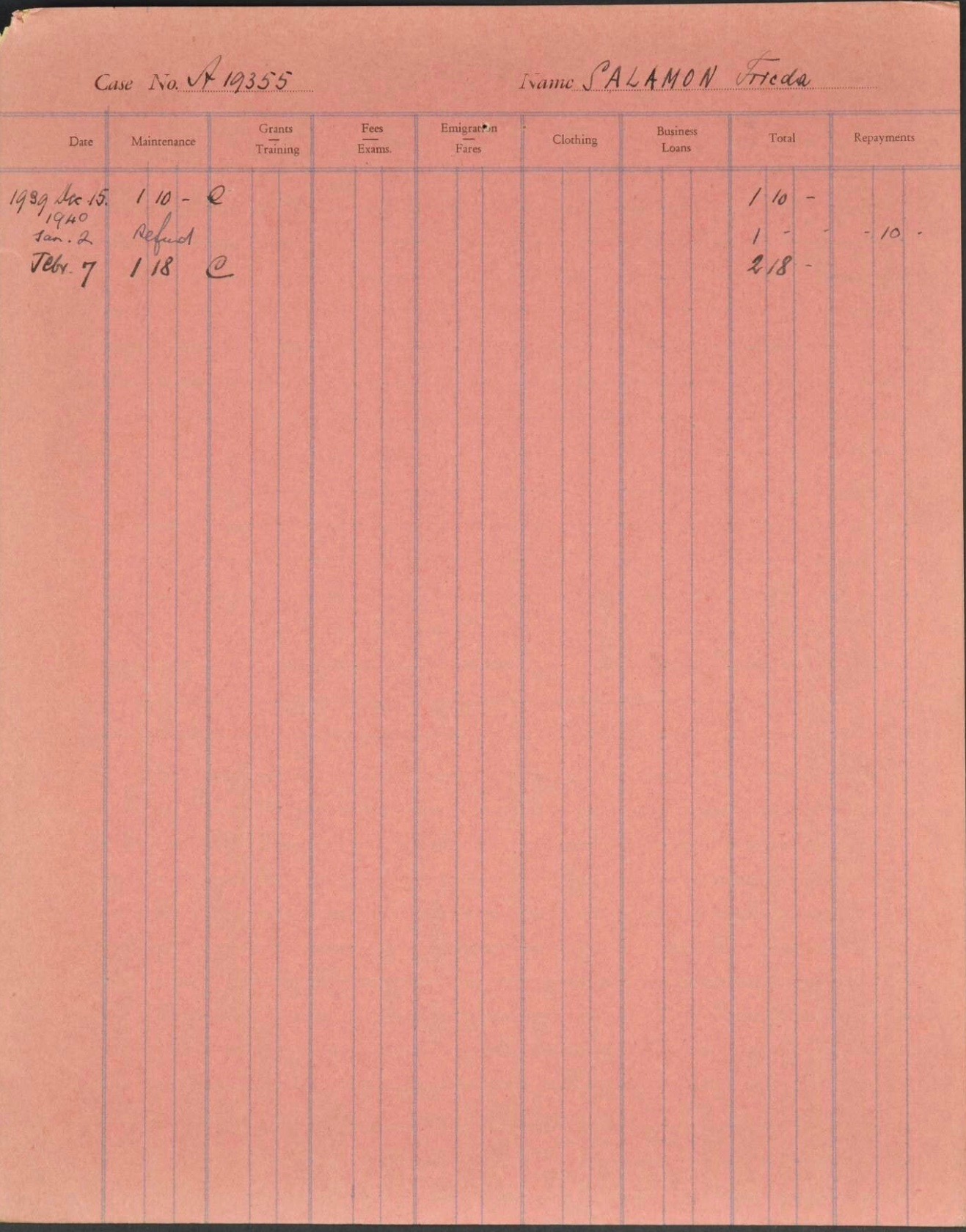


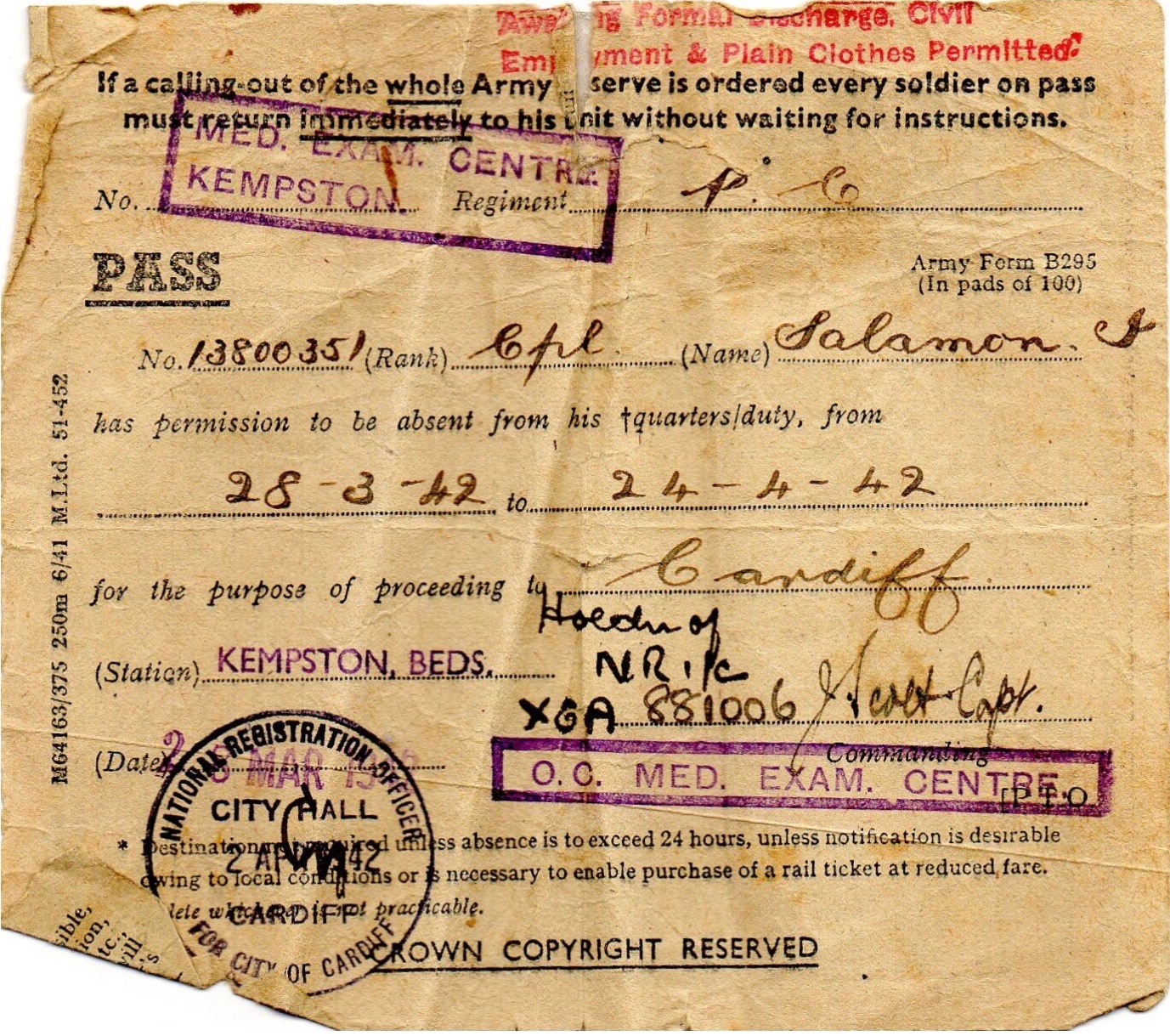
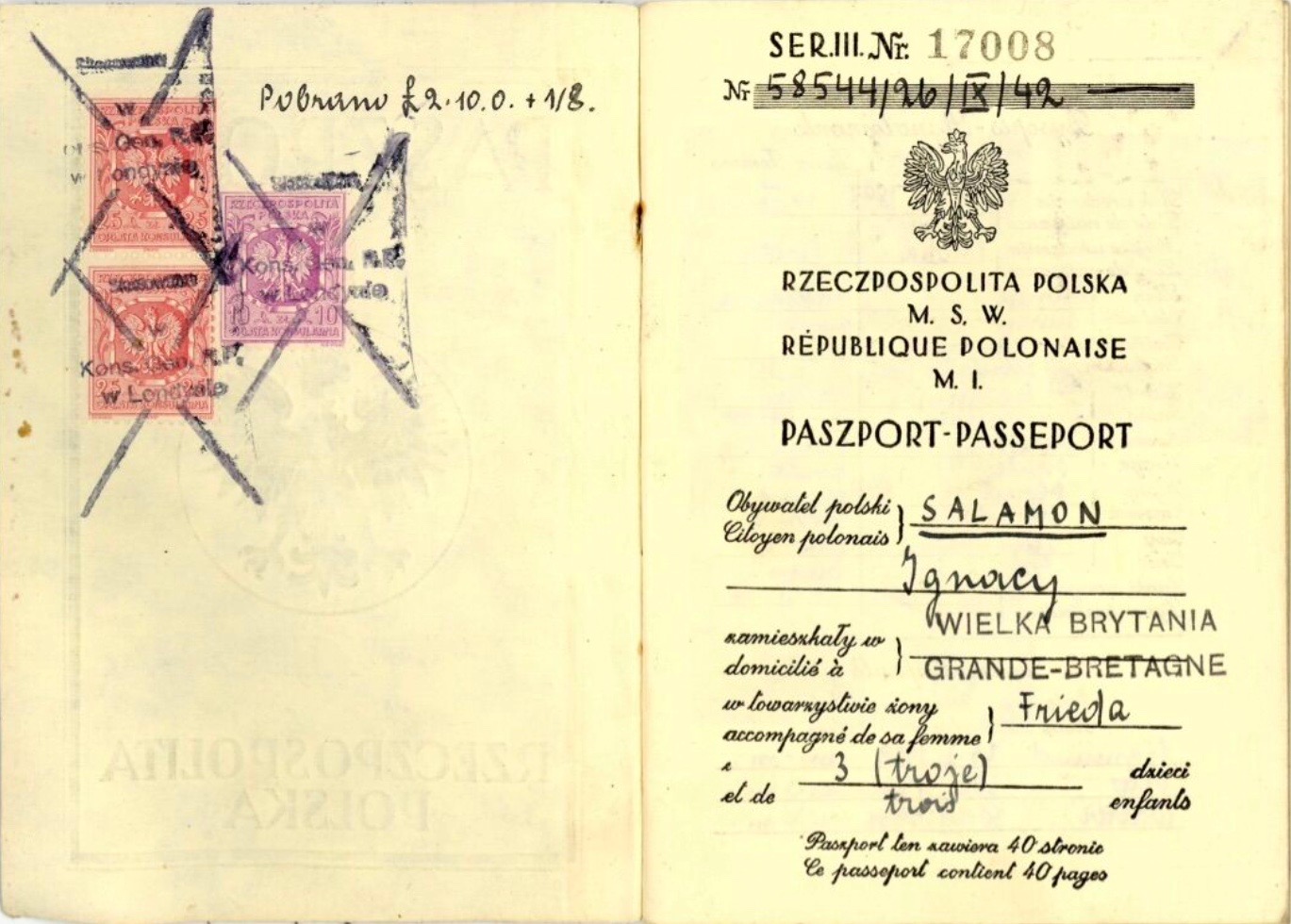
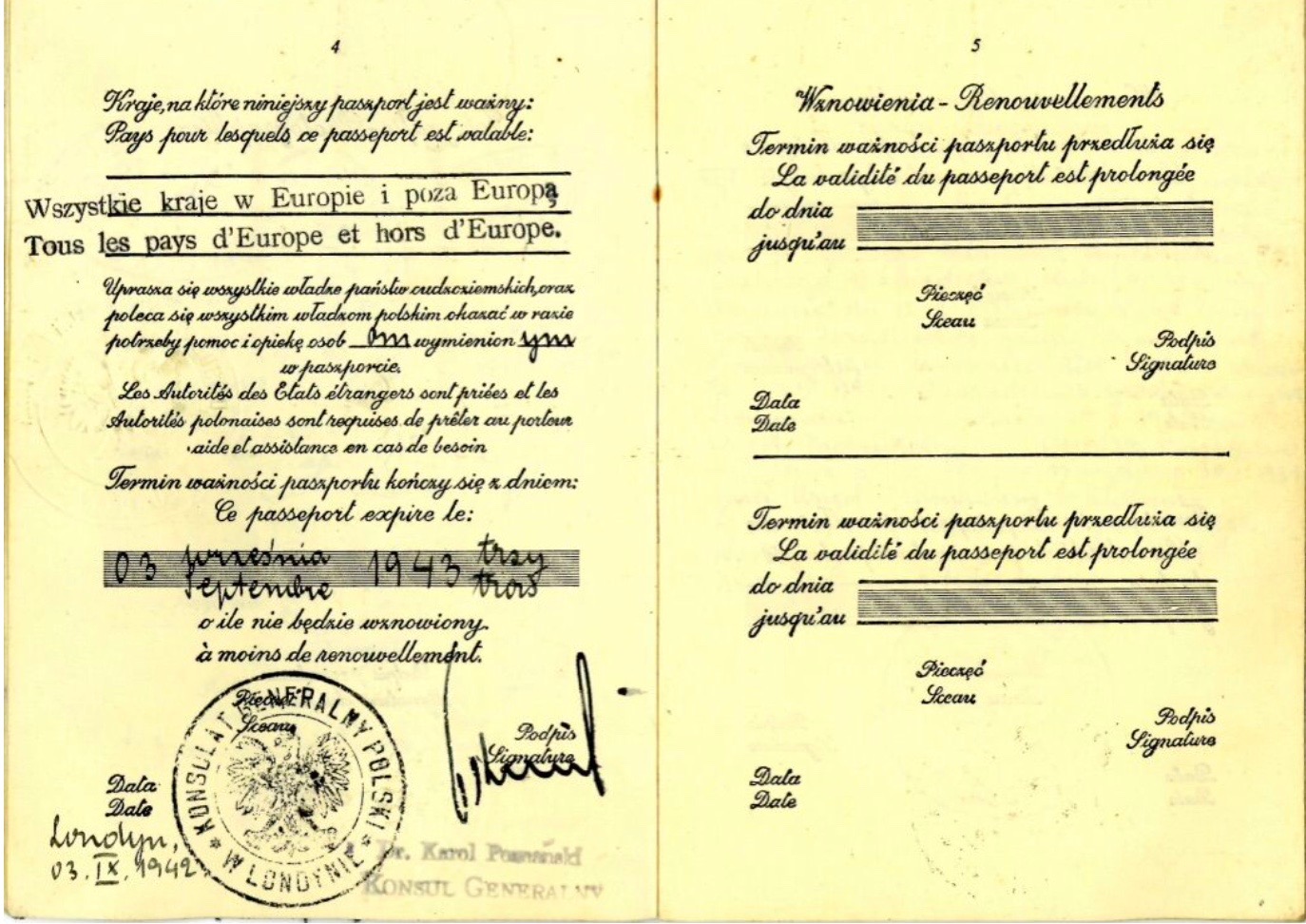
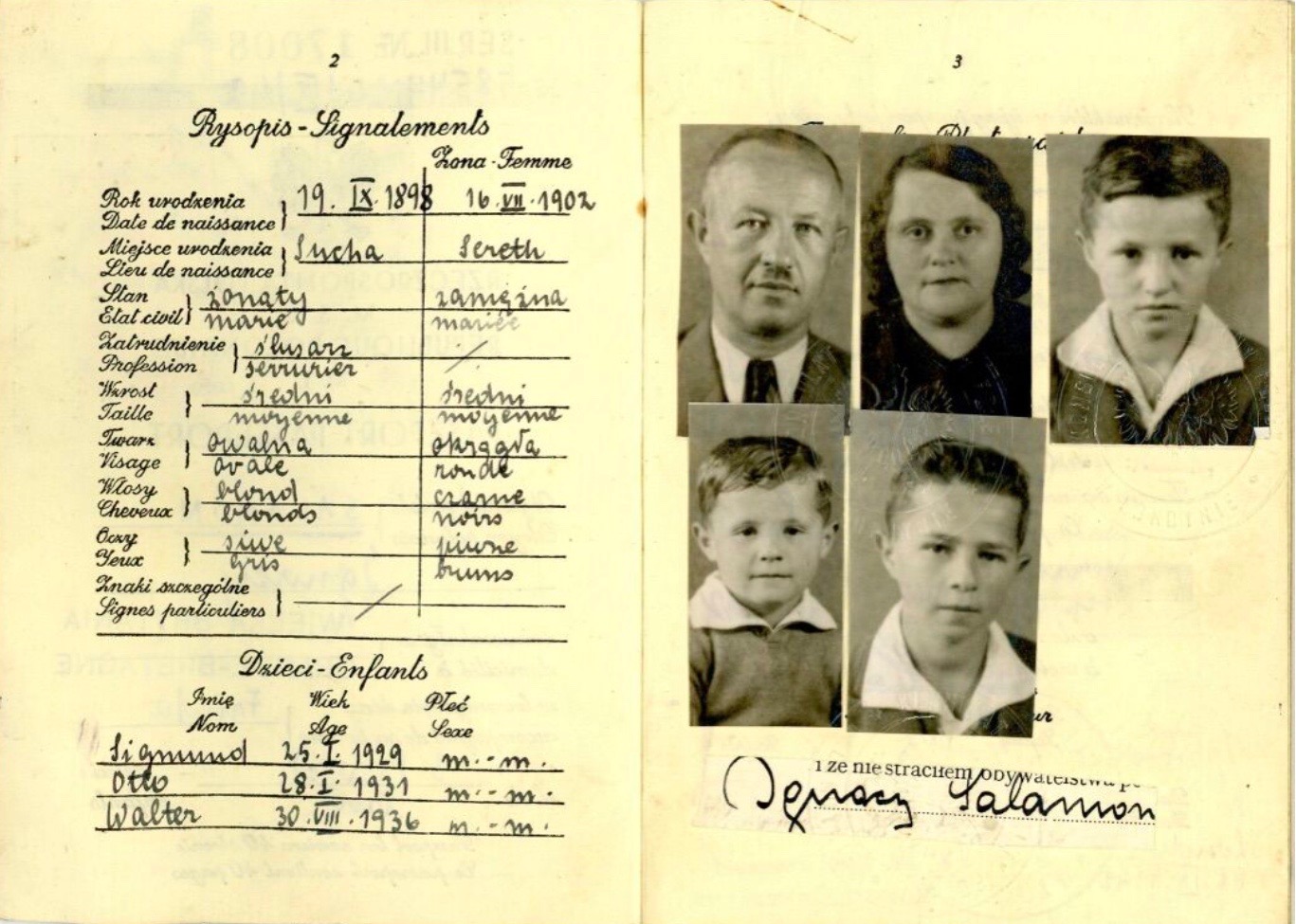
Letters
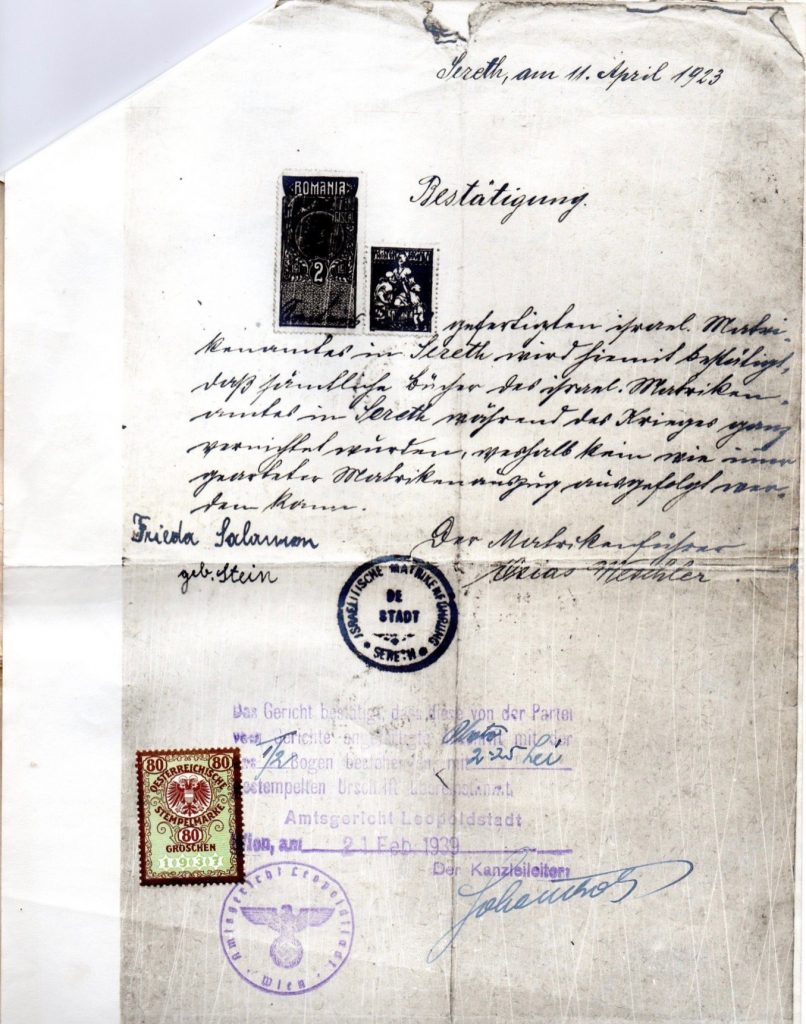
Ministry of Internal Affairs Warsaw 18 October 1938 Mr Ignacy Salamon in Vienna Based on Legislation from 31/08/1938 and on the request of the Ministry of Foreign Affairs, the Ministry of Internal Affairs is depriving Mr I Salamon, born 19/9/1898, in sucha, son of Jozef and Karolina, maiden name Reichenbach (sic) of Polish Nationality. This decision does not require explanation and is final.
-Letters submitted by the Salamon family for Ignatz Salamon
Memories
Ignatz Salamon was born on 19th September 1898 in Sucha (near Krakow), Poland
Ignatz worked with his father (a former policeman) in his grocery shop in Sucha until he was conscripted into the Polish Legion in 1916.
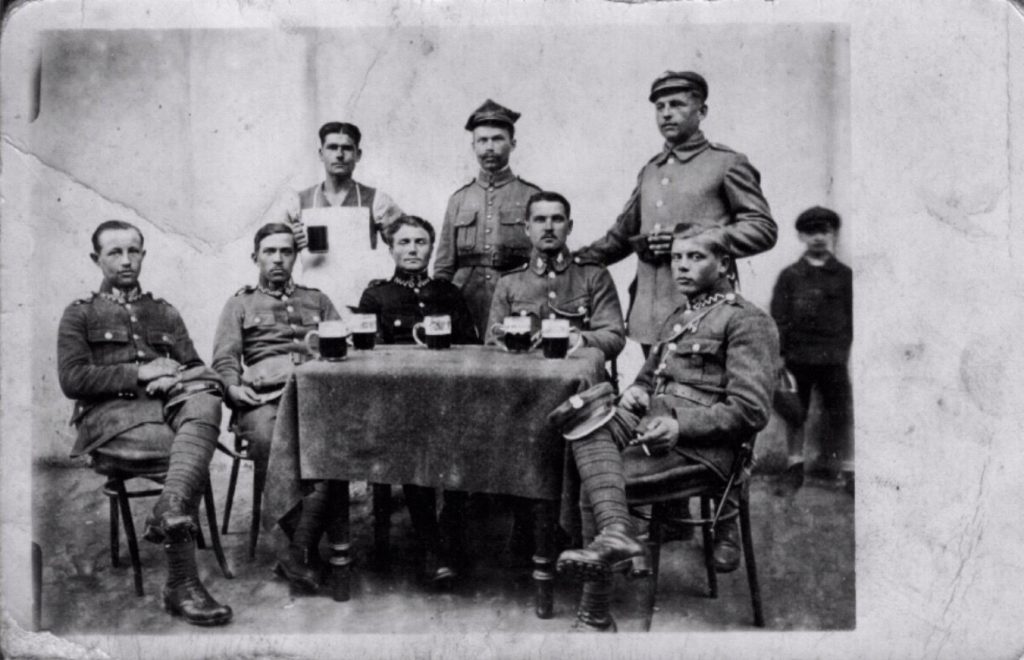
He was billeted in Bukovina, Romania, where he met his future wife. Ignatz served in the Polish army until 1921. He moved to Austria shortly after being de-mobbed, presumably because of rising anti-semitism in the newly formed Polish state.
Ignatz married Frieda Stein, who was born on 16th April 1902, in Seret, Romania.
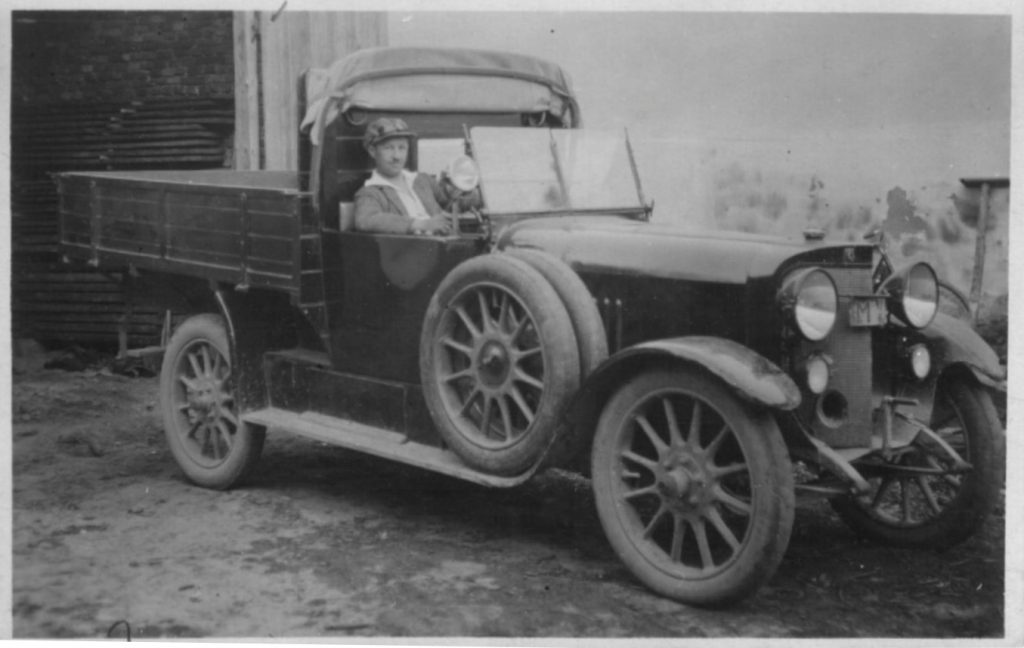
On 24 July 1923, they were living in Vienna, Austria.
The family lived in Eisenhuttl and then Rohrbach an der Teich, Burgenland, Austria, between 1923 and 1938.
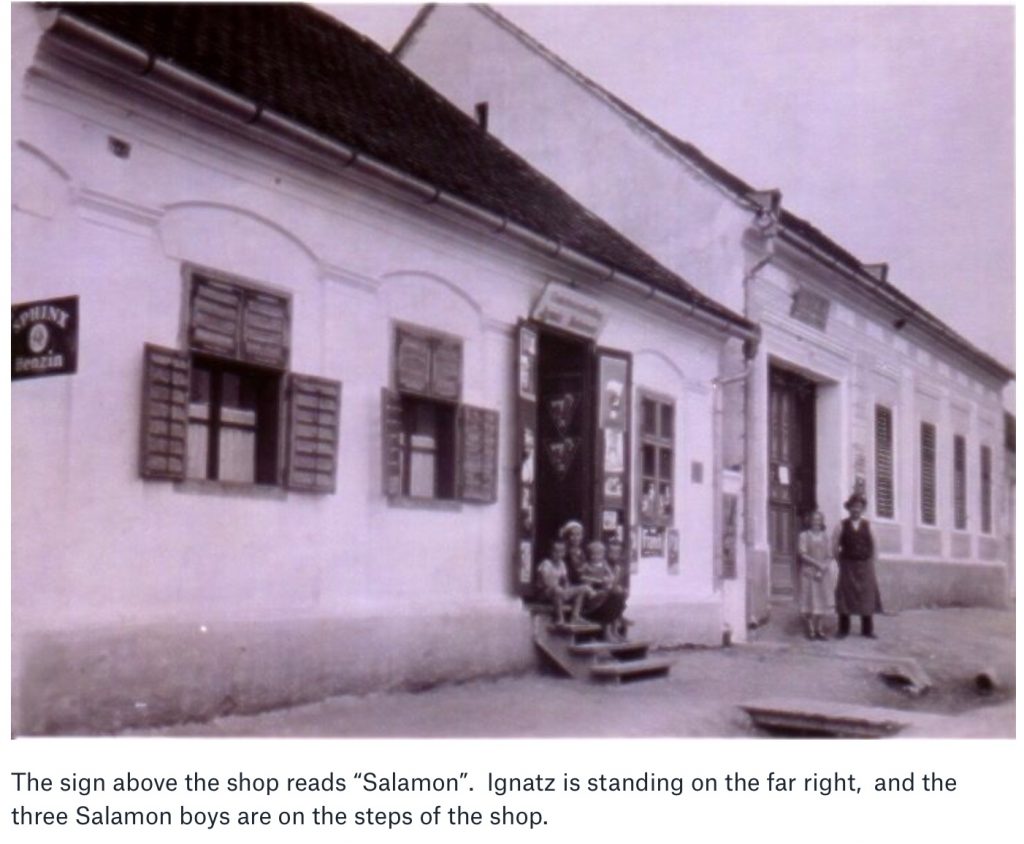
After the Anschluss on 11 March 1938 the Nazis particularly wanted to make an example of the area of Burgenland – where Jews had lived happily for two centuries – by making it Judenrein within 6 weeks.
The Gestapo came to my grandfather’s shop (having asked my then-9-year old uncle where “the Jew shop” was; he ran across the fields to warn his parents. The Gestapo issued orders for the family to leave within two days. The family had to leave their shop, its contents, and almost all their possessions behind.
They went to Vienna in April 1938 and began the process of trying to leave the country.
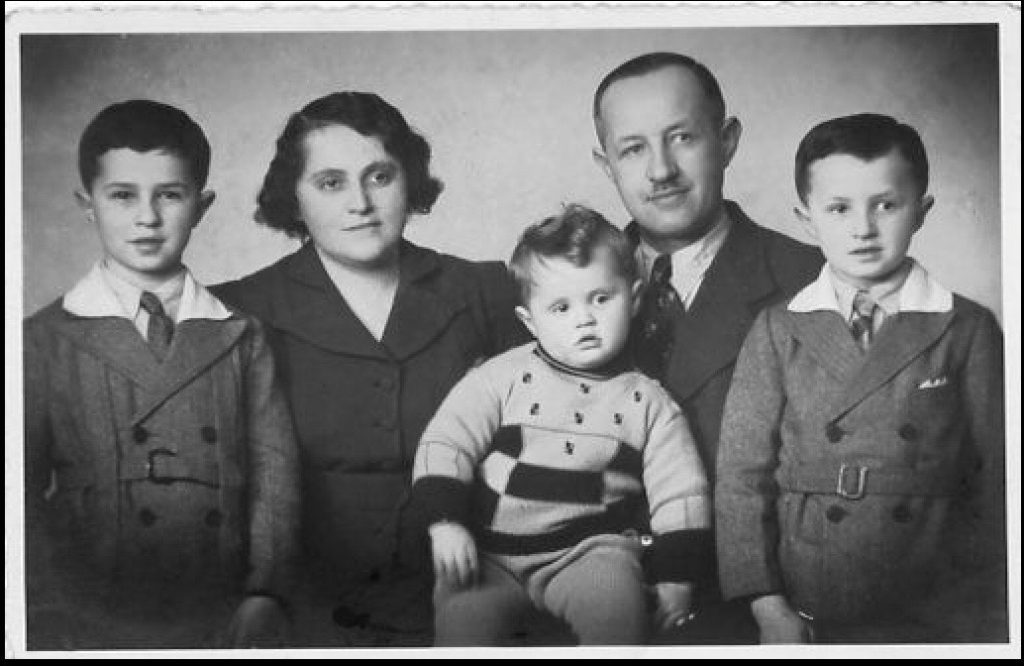
It seems my grandfather first tried returning to Poland, but in October 1938 he was deprived of his Polish citizenship by the Ministry of Internal Affairs, in Warsaw.
On 9 November 1938 the family were living at Zirkus Strasse in Vienna – next door to a synagogue that was burnt down on Kristallnacht. It is unclear whether their building burned down too, but they were living at a different address (Kleine Pfargasse 7/10, Wien II) a month later.
Ignatz continued to try to find a means of escaping Austria. He exchanged letters with a cousin in the USA called Harry Solomon, and a neighbour of his from Sucha, Yetta Lowenstein, who had successfully emigrated to the USA in summer 1938.
On 24th January 1939 Ignatz received a telegram from Harry Solomon in Philadelphia saying that an Affidavit would be sent. It was in fact thanks to Yetta Lowenstein that the family received an Affidavit, from her boss in a shirt factory in Philadelphia – a Mr Alex Jablow. He had to provide documentary evidence including three years of tax returns to show he could support the family. The Affidavit was later refused at the American Consulate, but by that time the family were in Britain, and it had provided their means of escape.
Ignatz received his Alien Passport on 29 April 1939 and left for England, arriving on 12 May 1939. His intention was to make arrangements for his wife and children to join him, which they were able to do, thanks to the Domestic Visa scheme, arriving in England on 21 August 1939.
The three boys went to live with a blacksmith and his wife in Ashford, Kent, where they were treated very badly. Frieda was not allowed to see her children, except through the kitchen window. Frieda was employed as a ‘domestic’ at a farm nearby in Woodchurch. Fortunately, they were only there for around nine months before going to live with Ignatz’s brother Maks and his wife in Cardiff. They had left Poland some months before Ignatz, for Maks to take up employment at the Czech Jewish owned Aero Zipp factory in Treforest.
On 10 October 1939 Ignatz received his Exemption from Internment and on 18 December 1939 he enlisted with the AMPC.
On the 1 May 1940 Ignatz received a letter from the Overseas Settlement Office telling him that he would not be able to emigrate to the USA for the duration of the war. After receiving this document Ignatz arranged for his wife and children to go to his brother in Cardiff.
Ignatz stayed with the Pioneer Corps until he was injured out in 1941. He was in Kempston Barracks, Bedfordshire, which was used as a convalescence hospital, from where he was given leave to visit his family in Cardiff in March 1942.
In May 1942 Ignatz began work as a foreman in the Aero Zipp factory, making parts for the war effort.
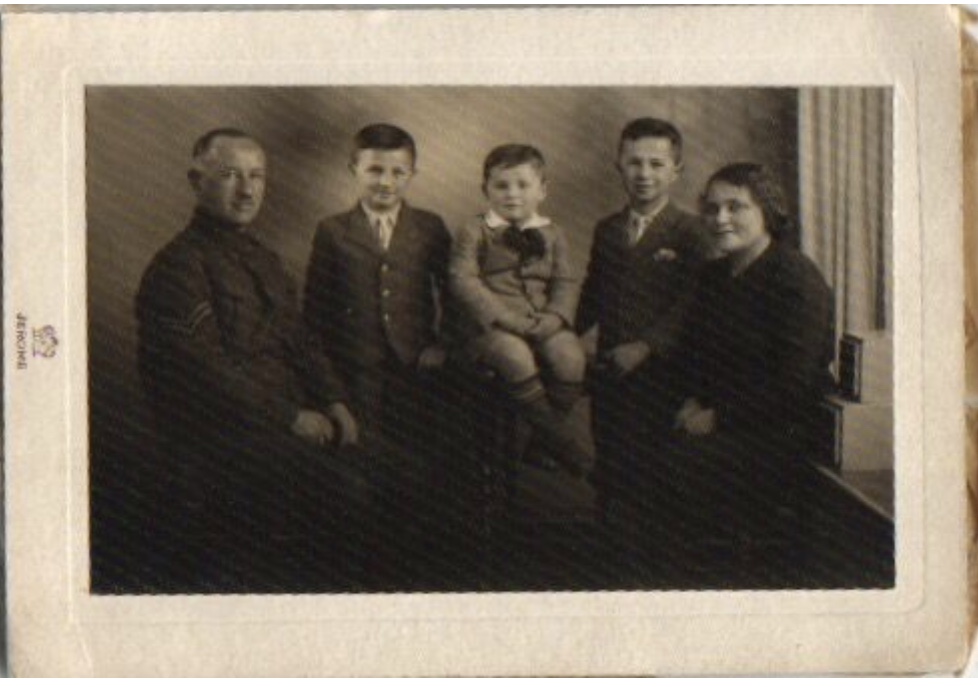
Ignatz remained working at Aero Zipp until 1949, when he managed to open his own grocery shop in Cardiff.
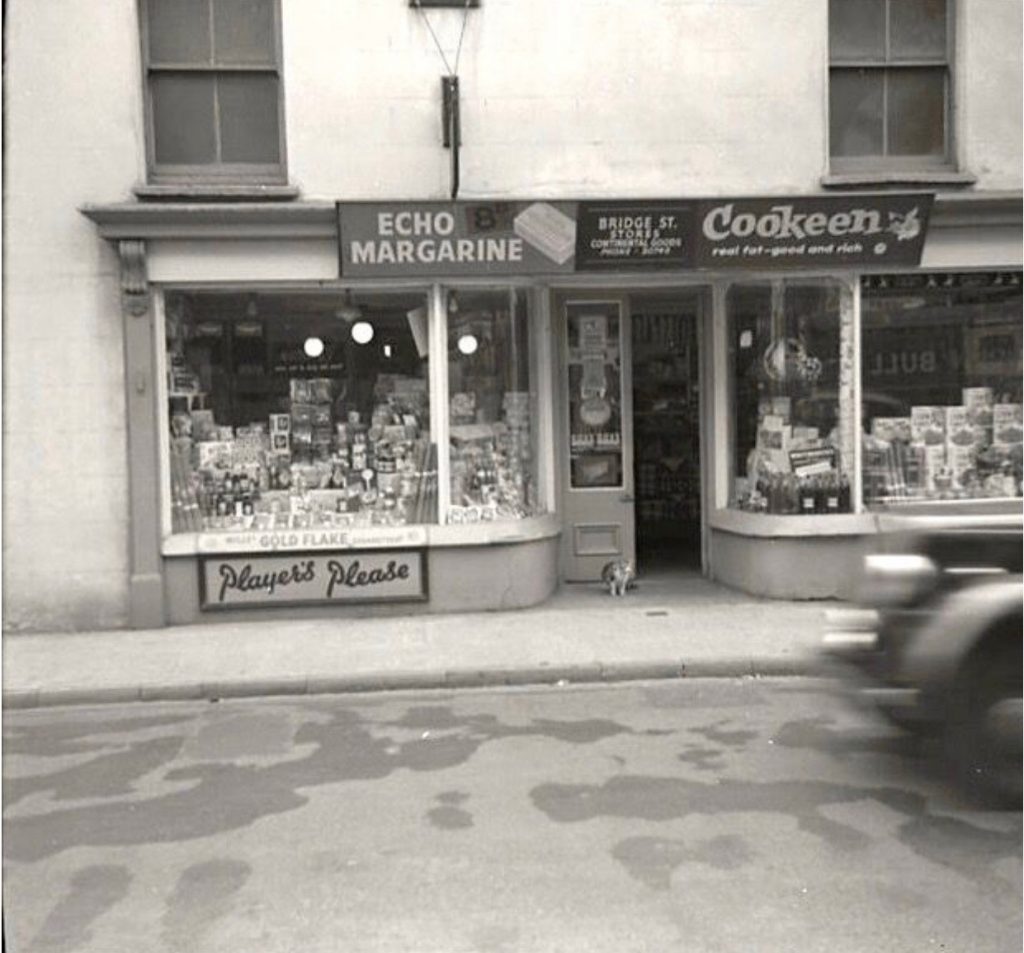
The shop gradually progressed from grocery store to delicatessen as the number of immigrants increased and Ignatz realized the need for continental foods.
Two of his sons, Wally and Otto, took over the shop after Ignatz’s death, and eventually, with the redevelopment of Cardiff in the early 1980s, Wally opened his own shop, ‘Wally’s Delicatessen’ in the Royal Arcade in Cardiff. It is still there today – now owned and run by Wally’s son Steven.
Ignatz and Frieda’s three boys all married and had children of their own – seven altogether – who have between them produced 20 great-grandchildren.
Ignatz had a brother and five sisters, but only he, his brother Maks, and one sister, Rusia, survived the war. The others, and their children, along with Ignatz’s parents and Frieda’s parents, all perished.
Testimony submitted by the Salamon family in memory of Ignatz Salamon
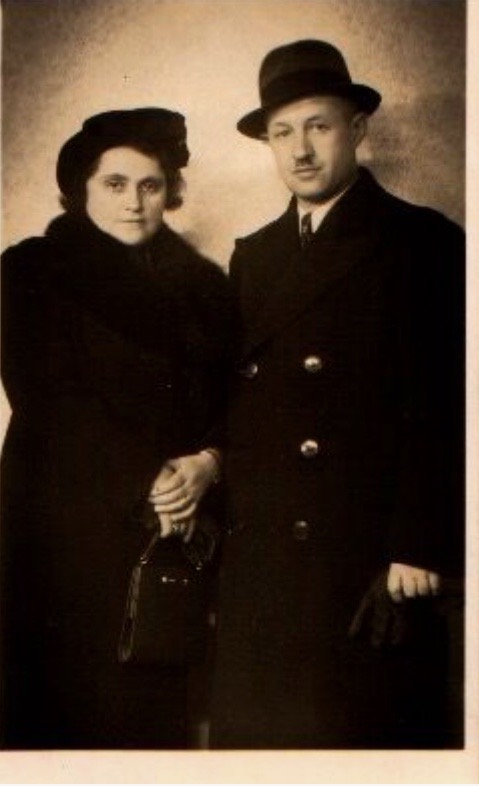
Photographs
-Photographs submitted by the Salamon family for Ignatz Salamon

